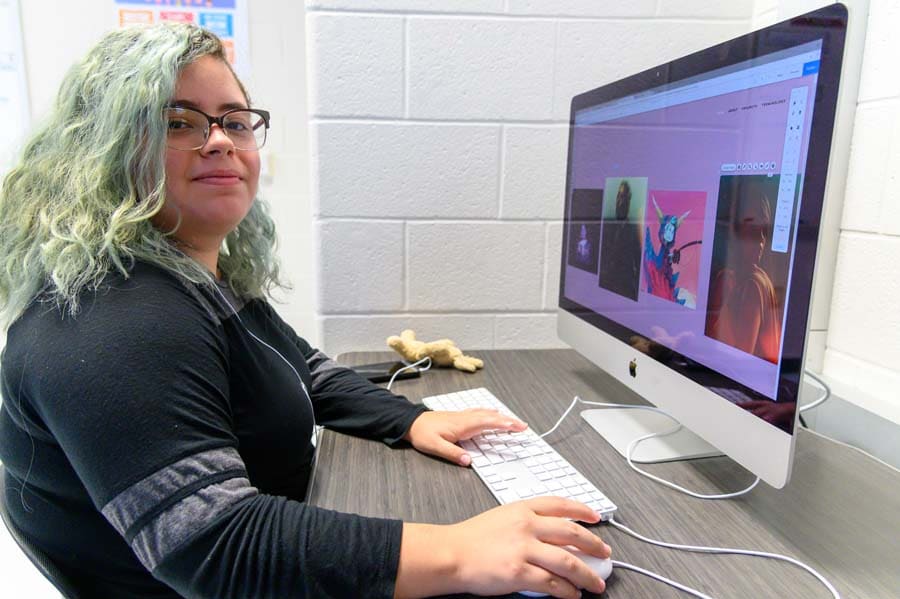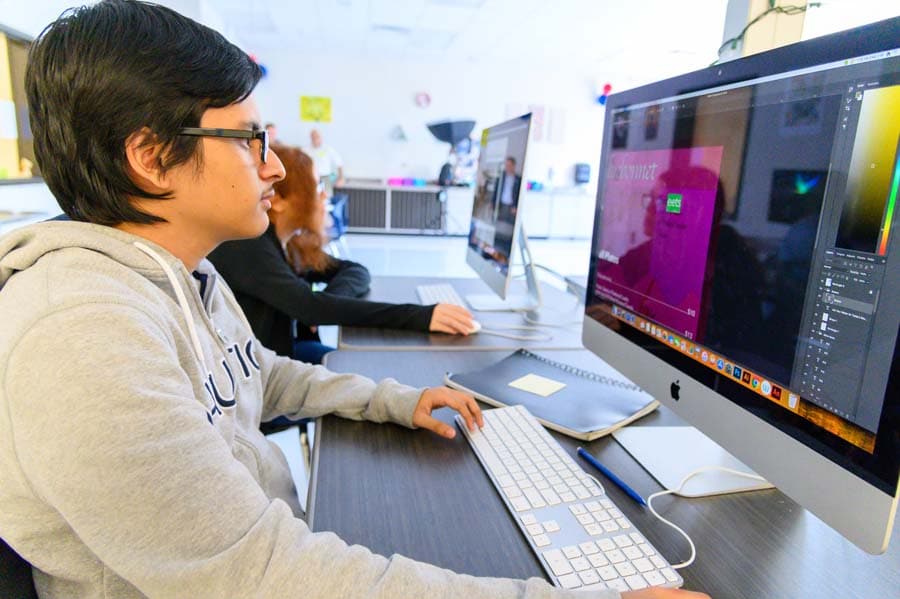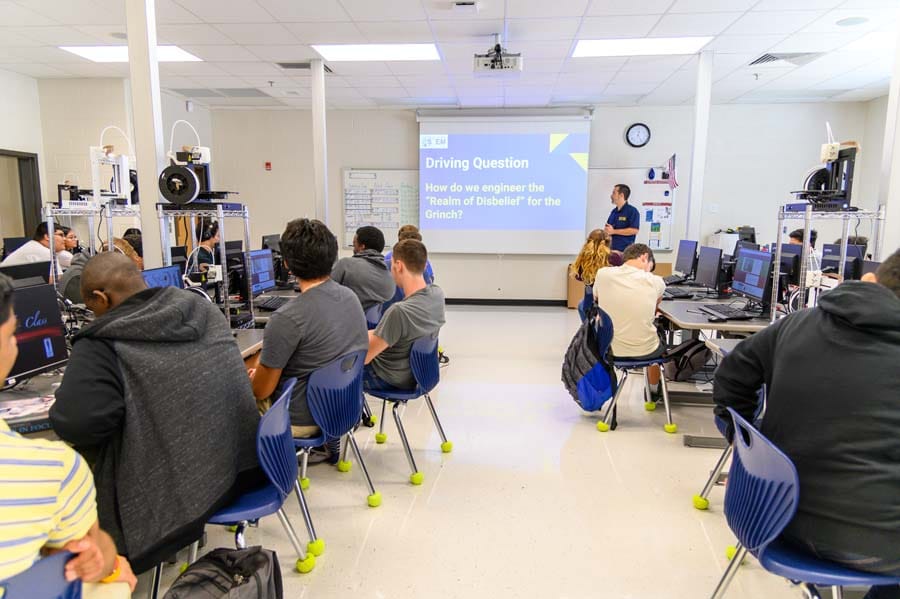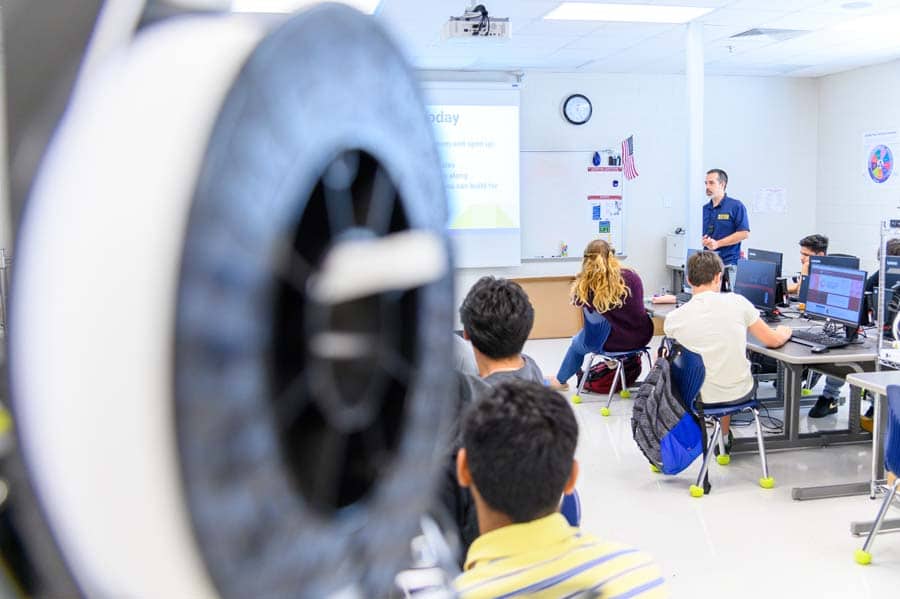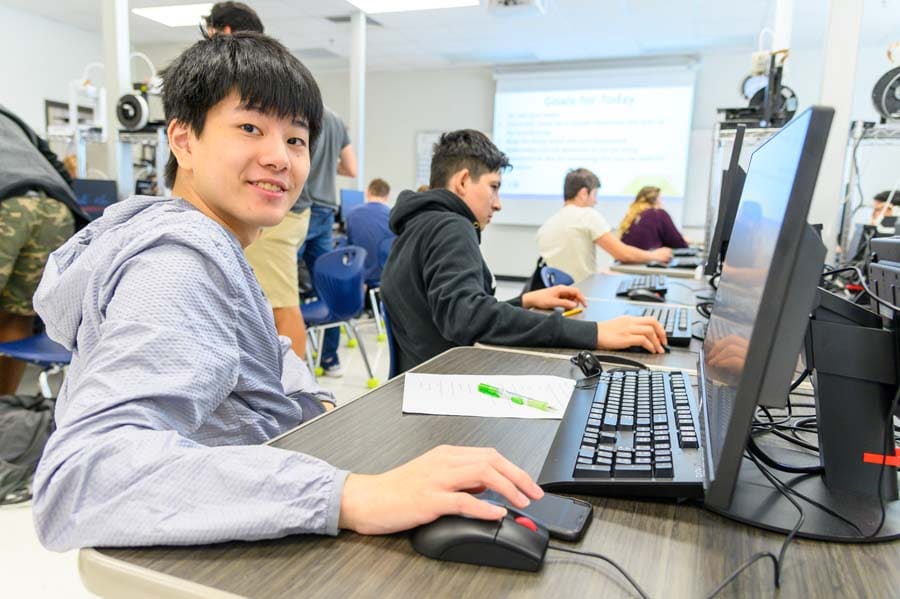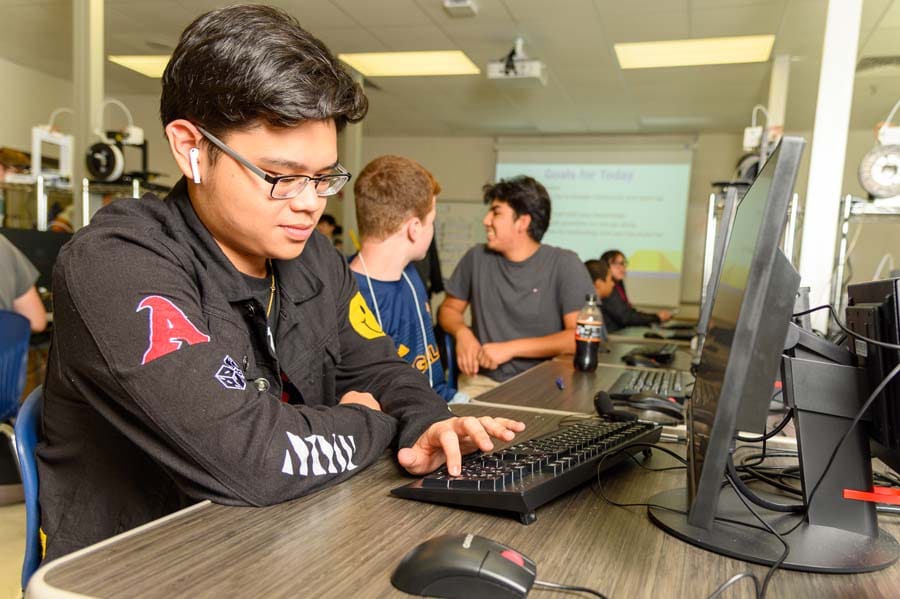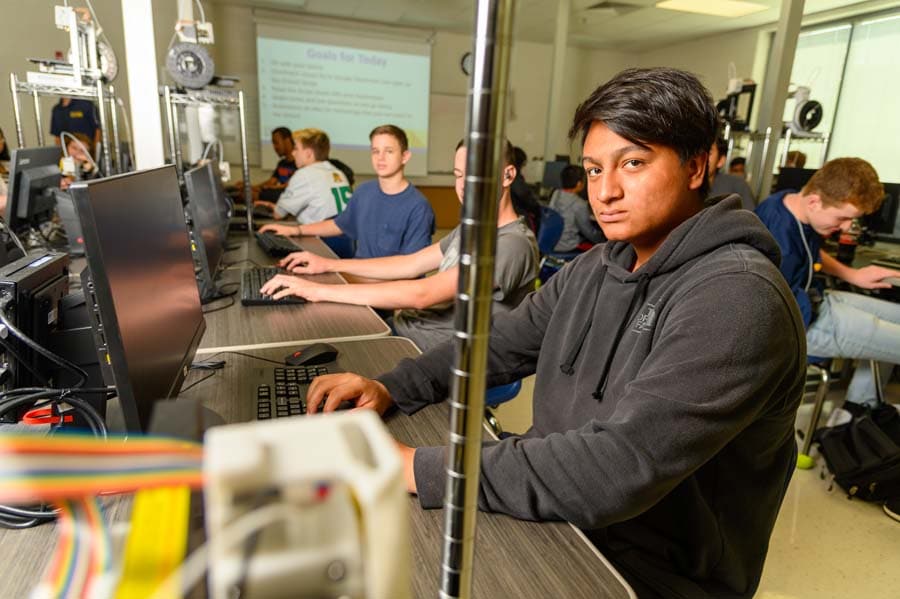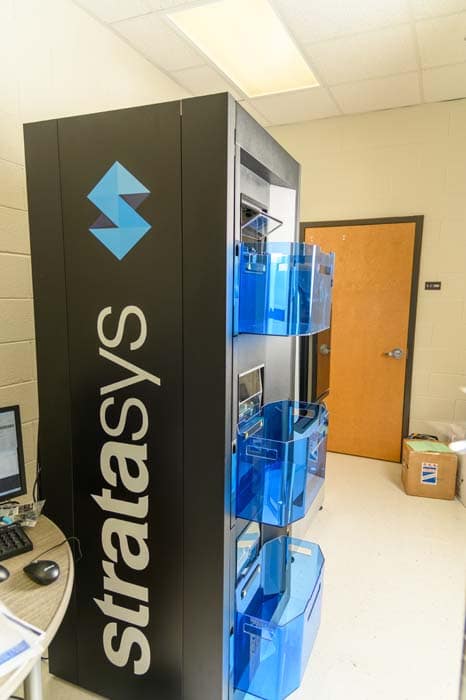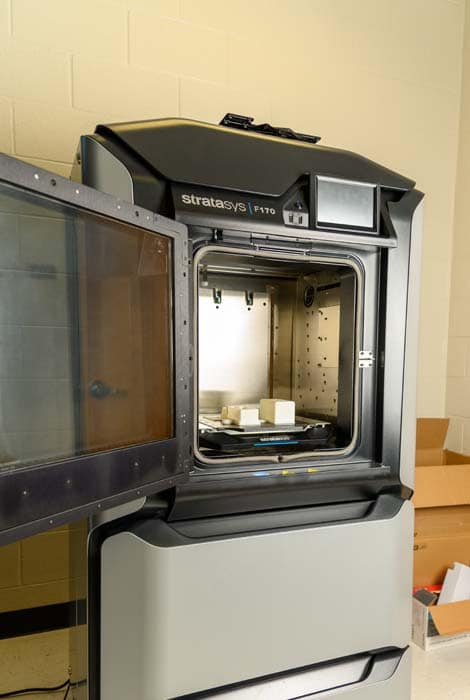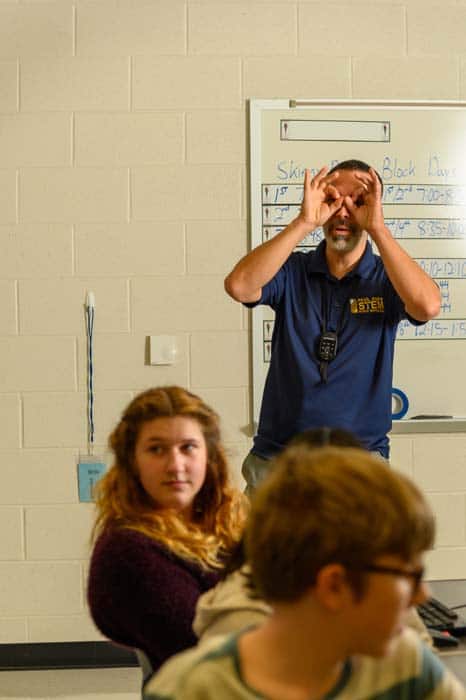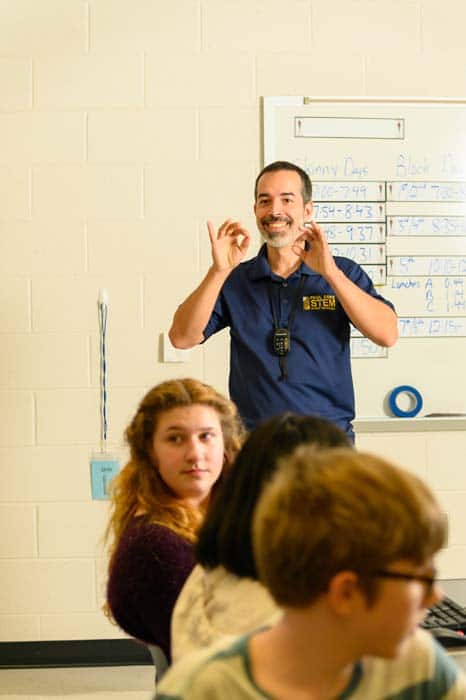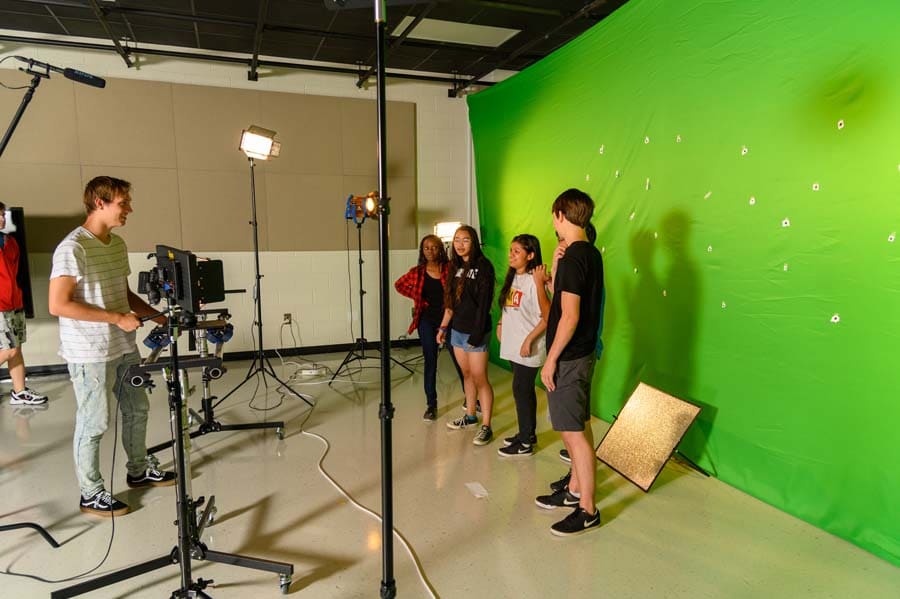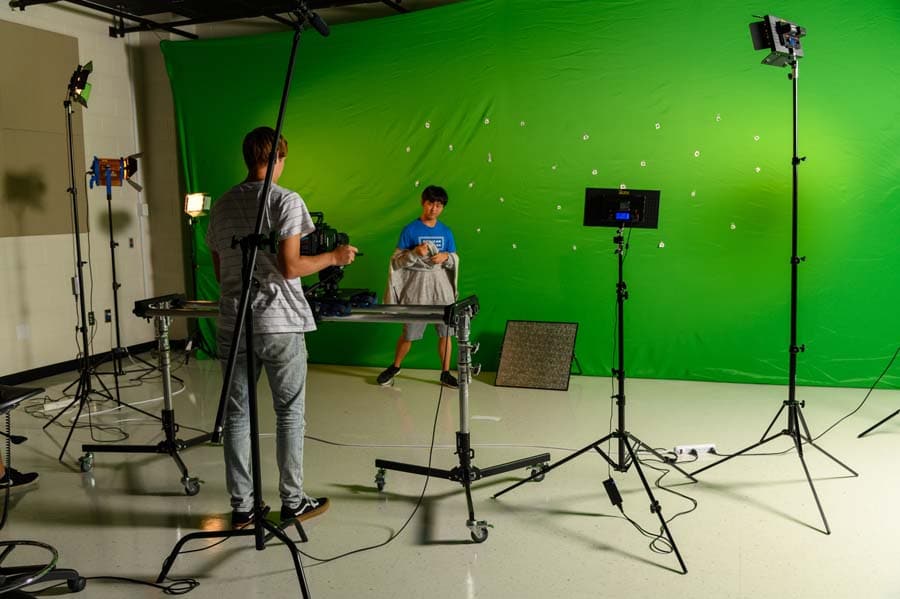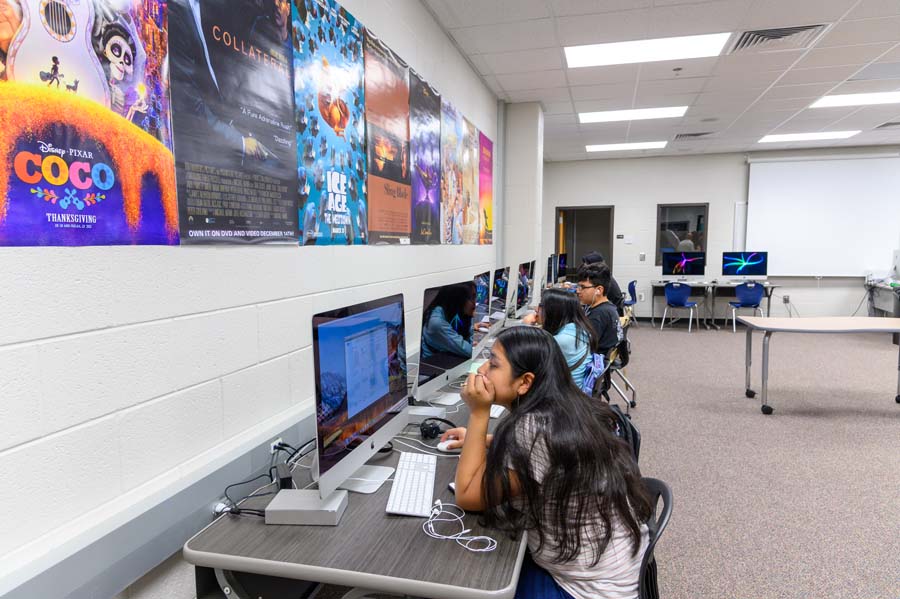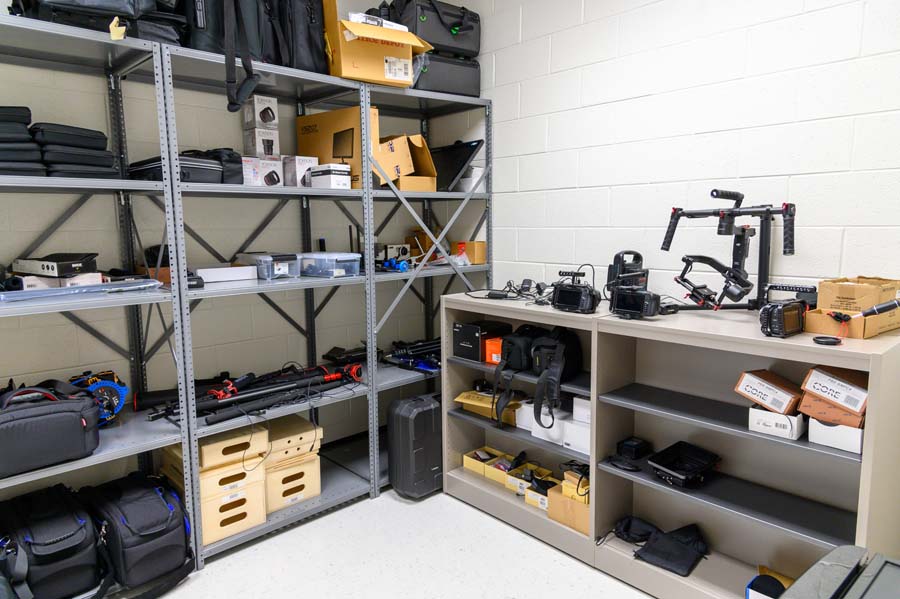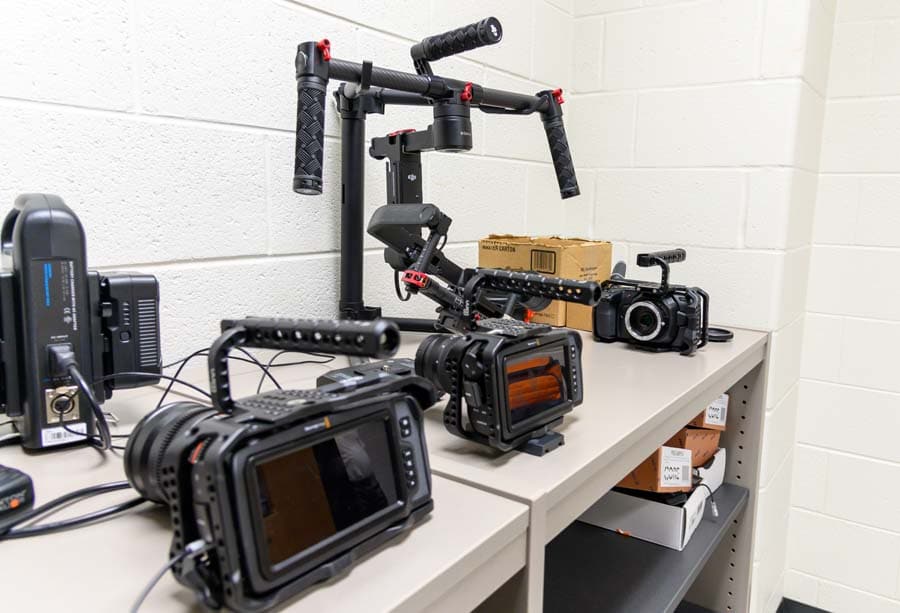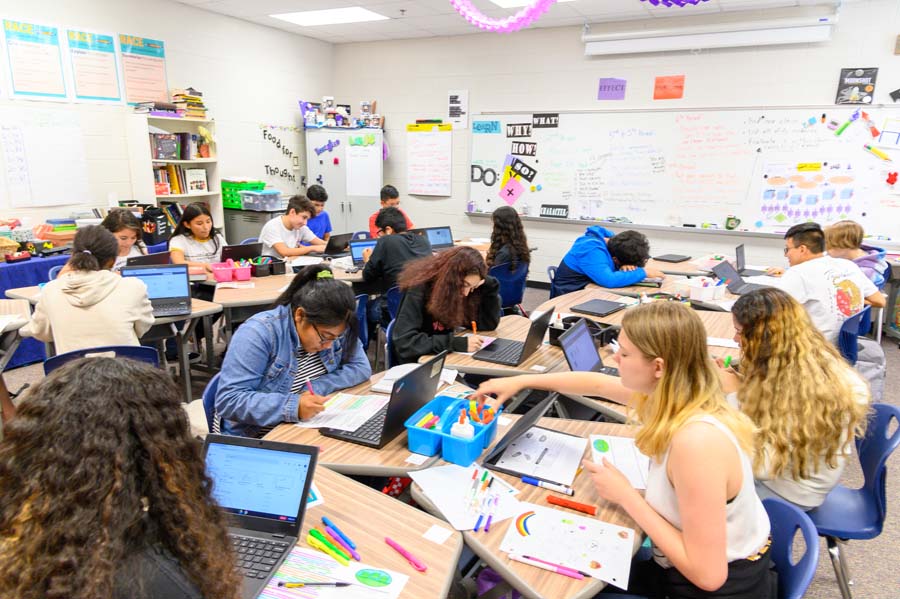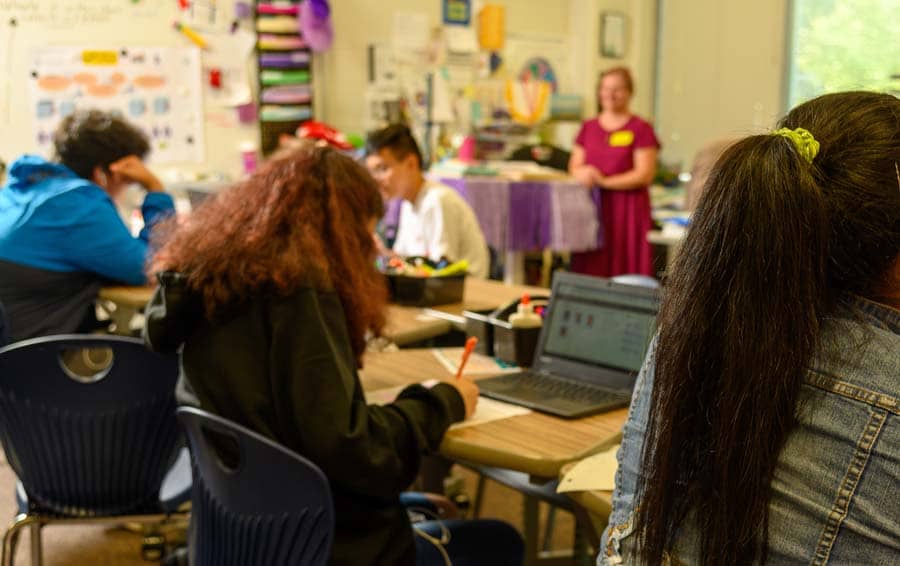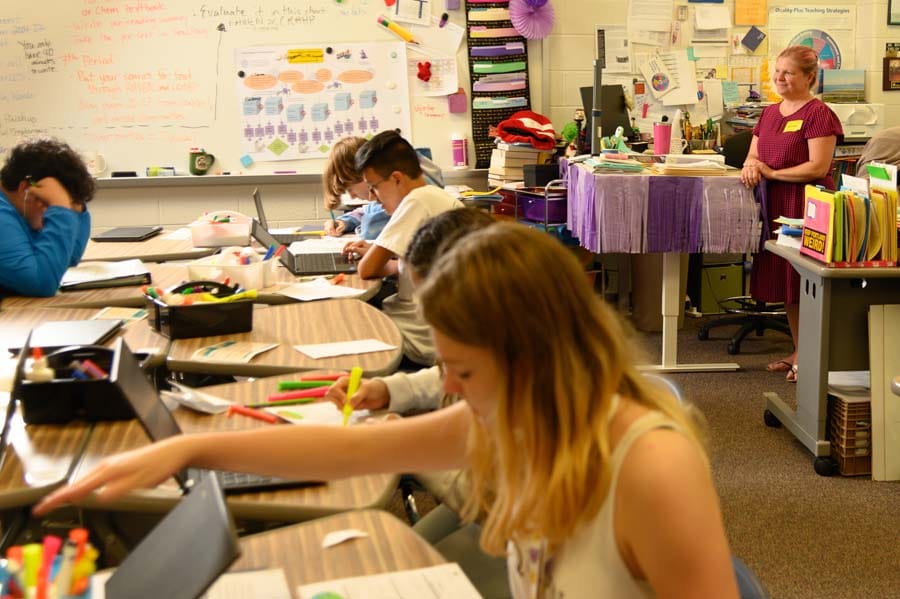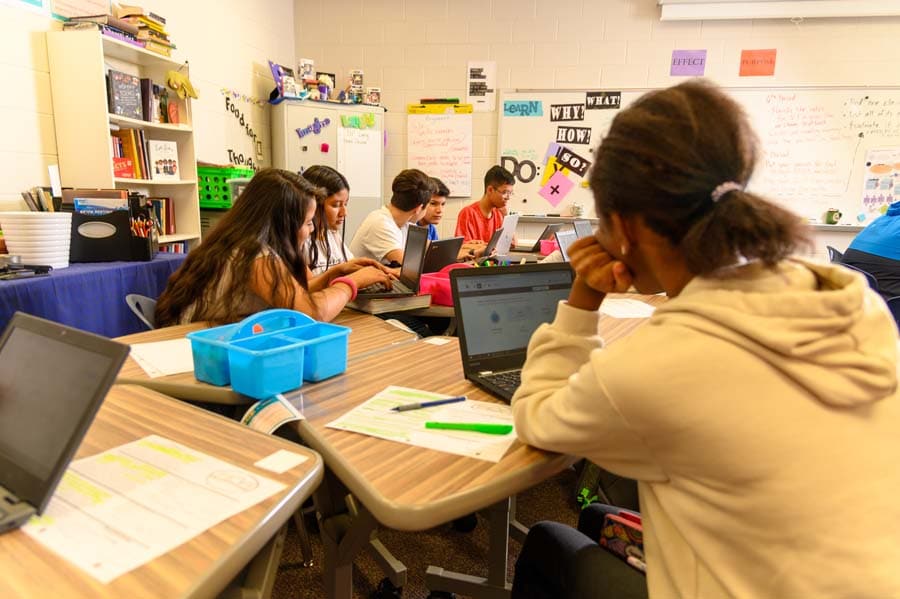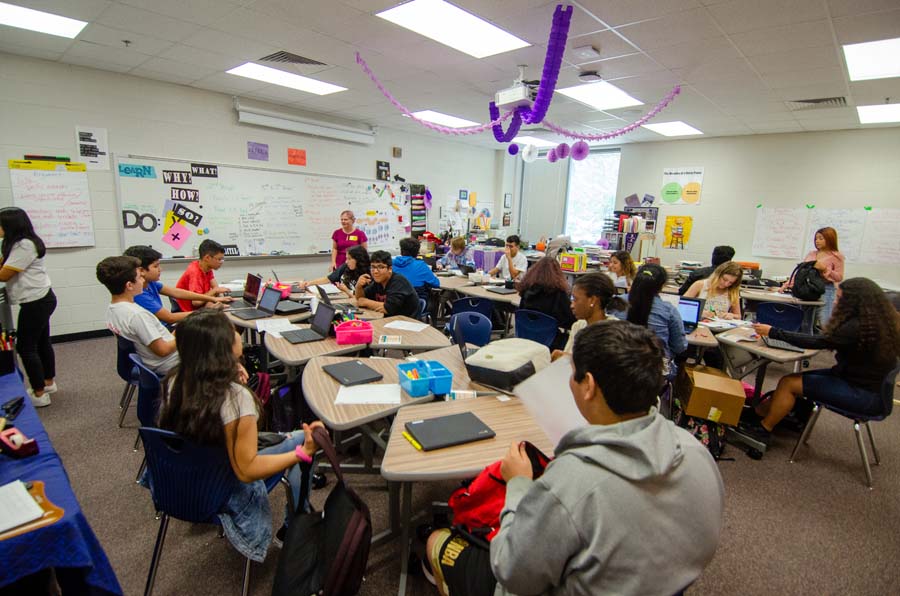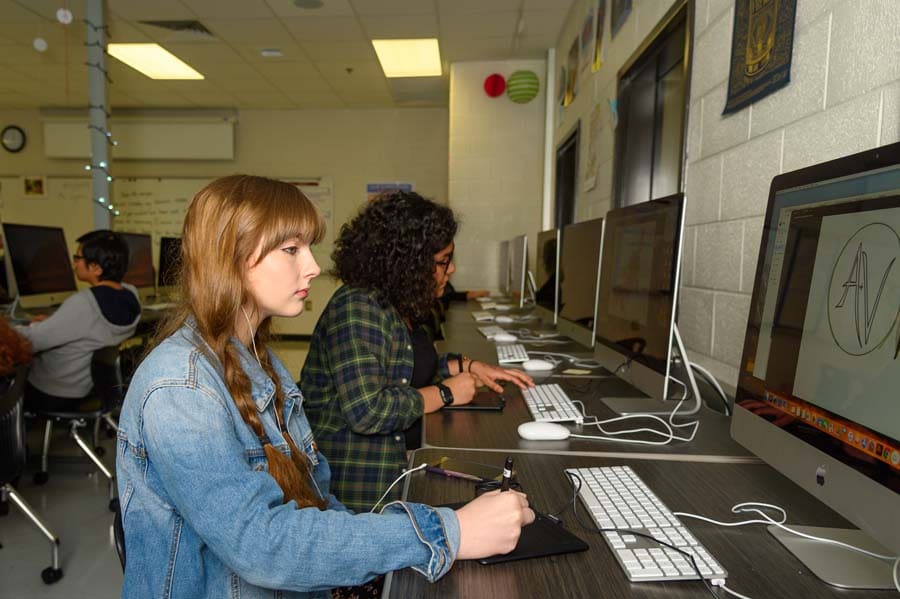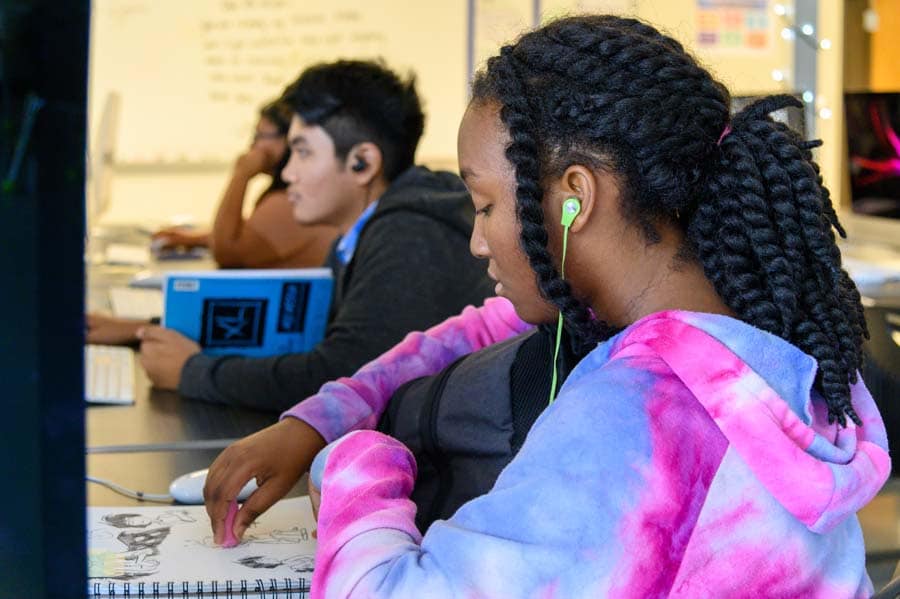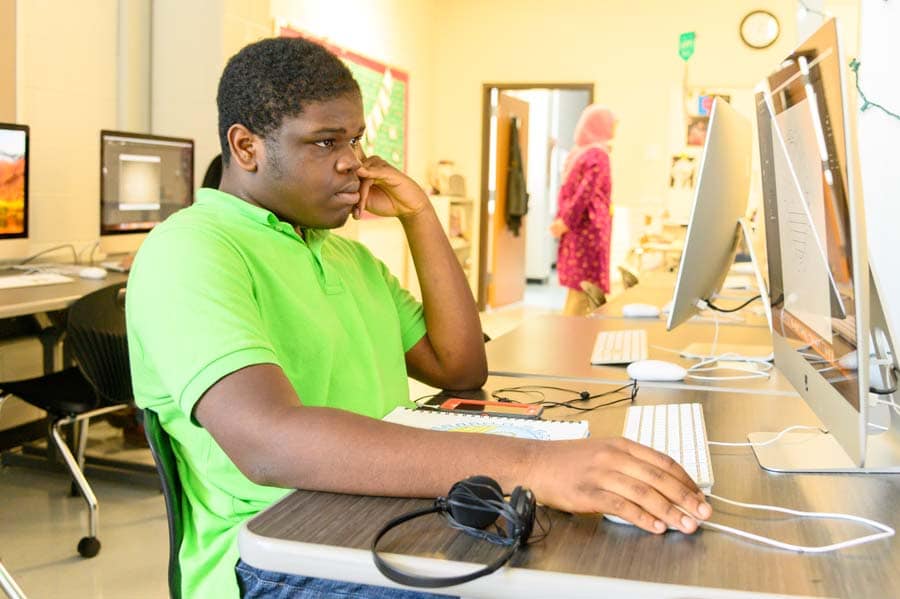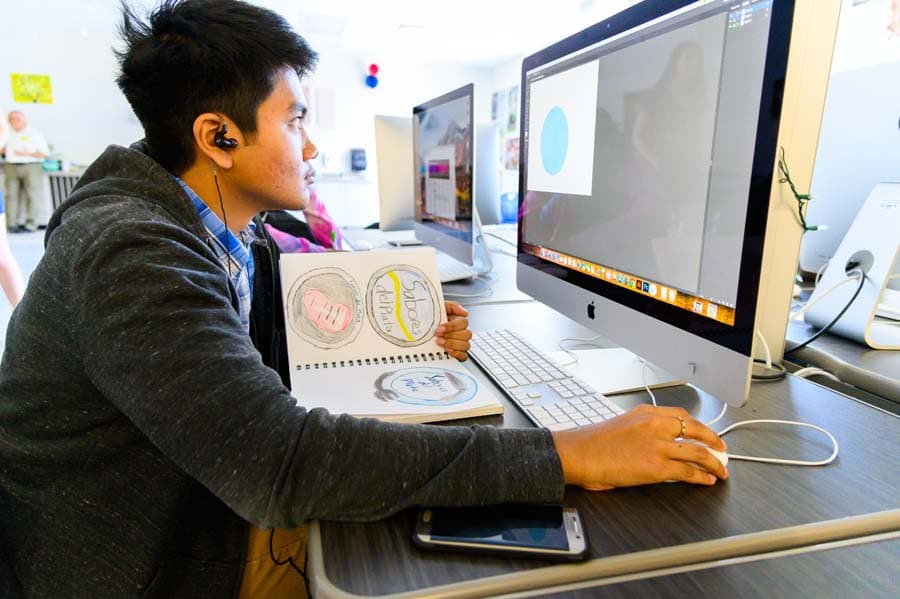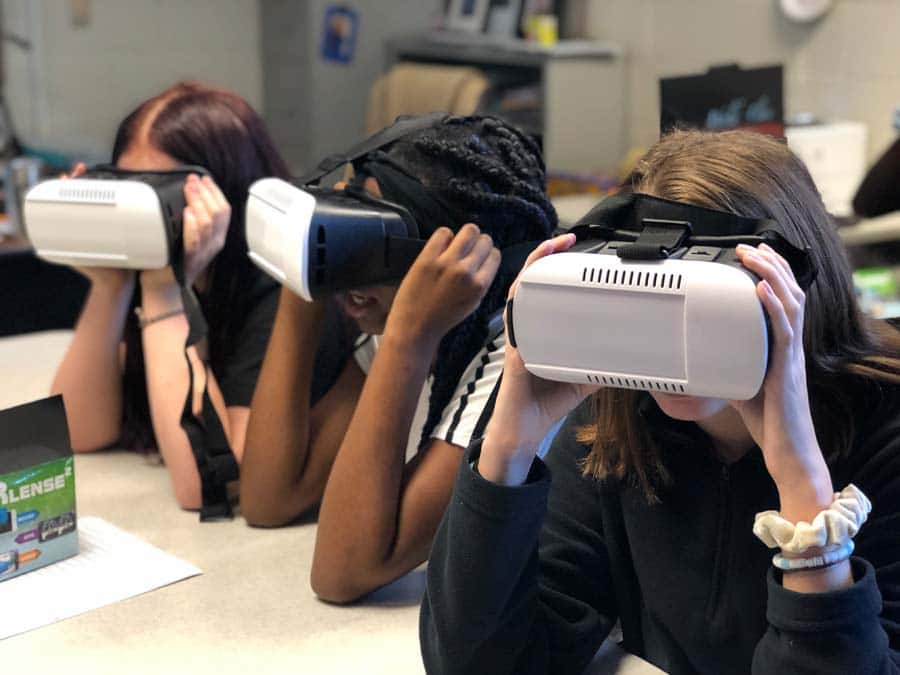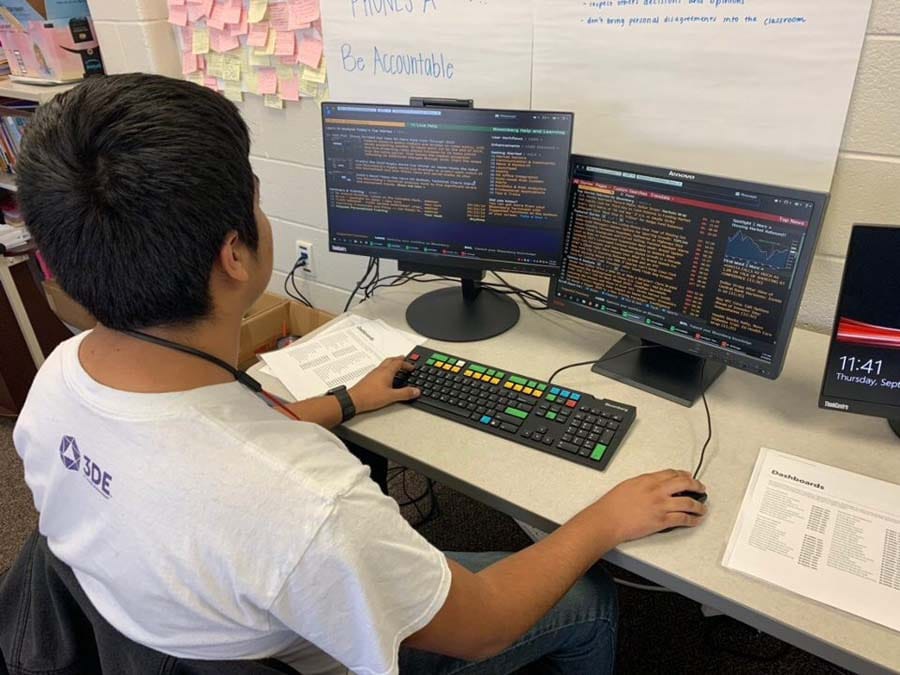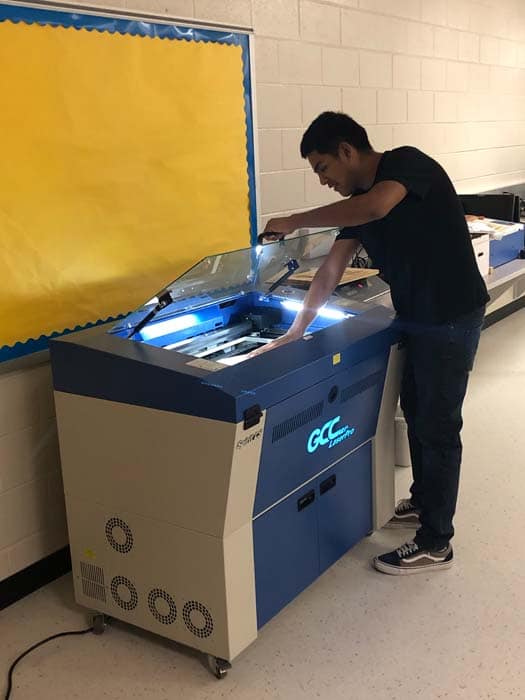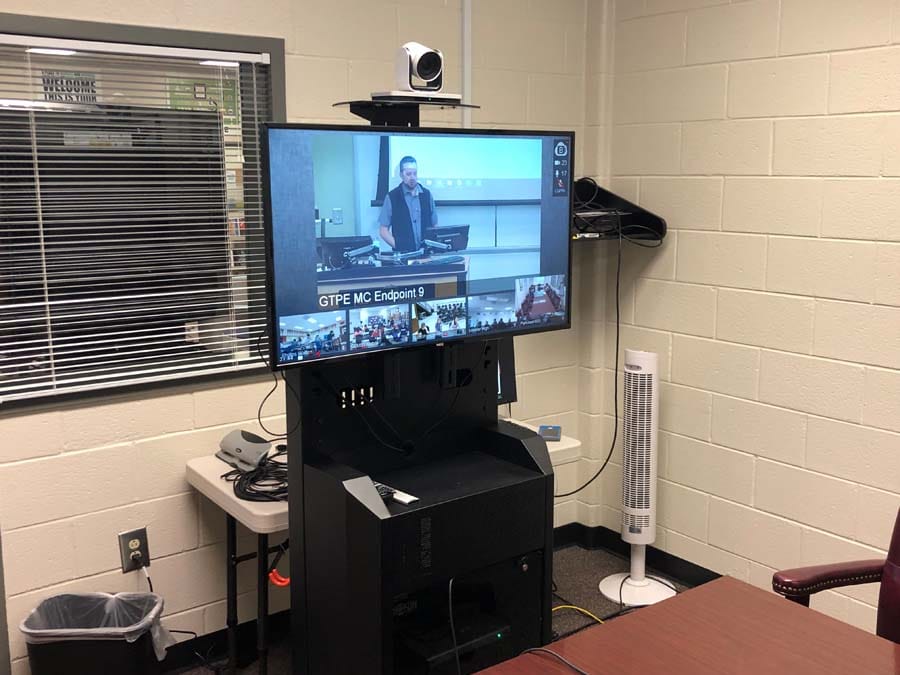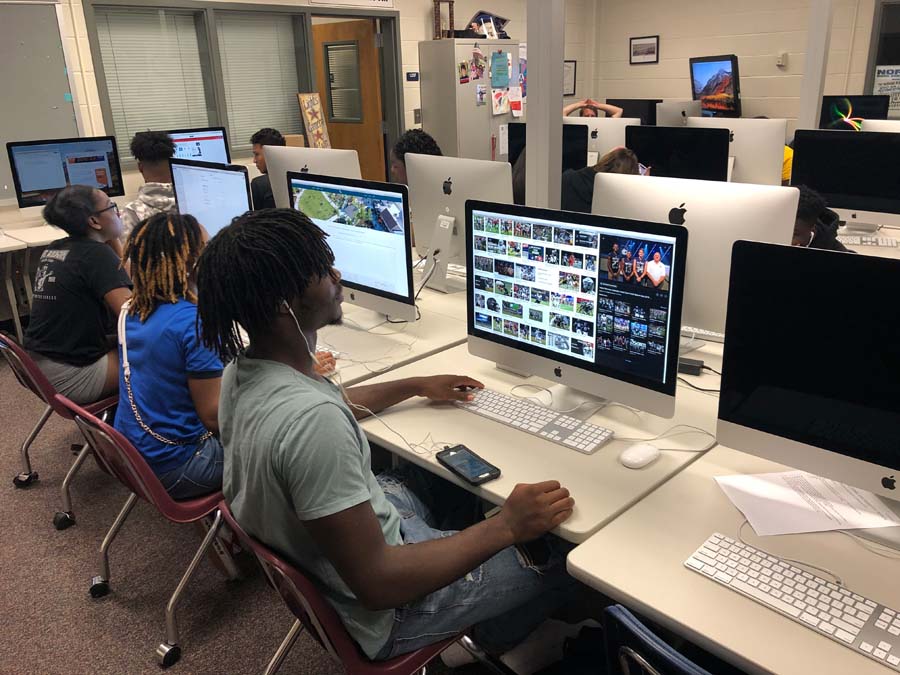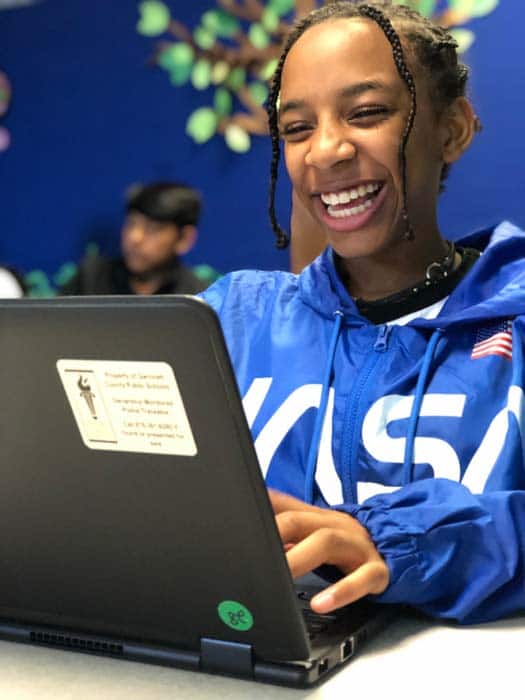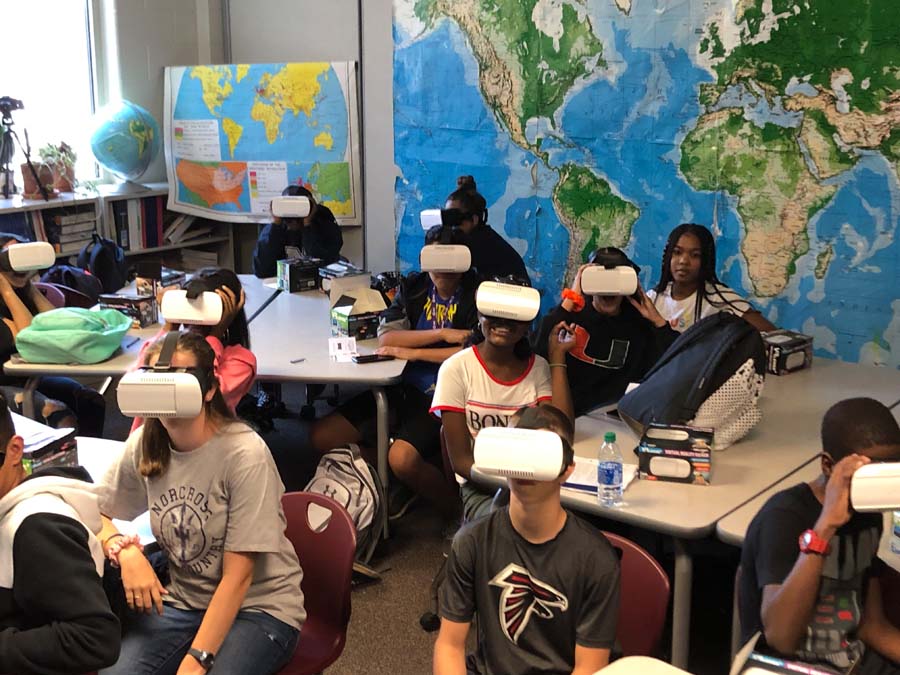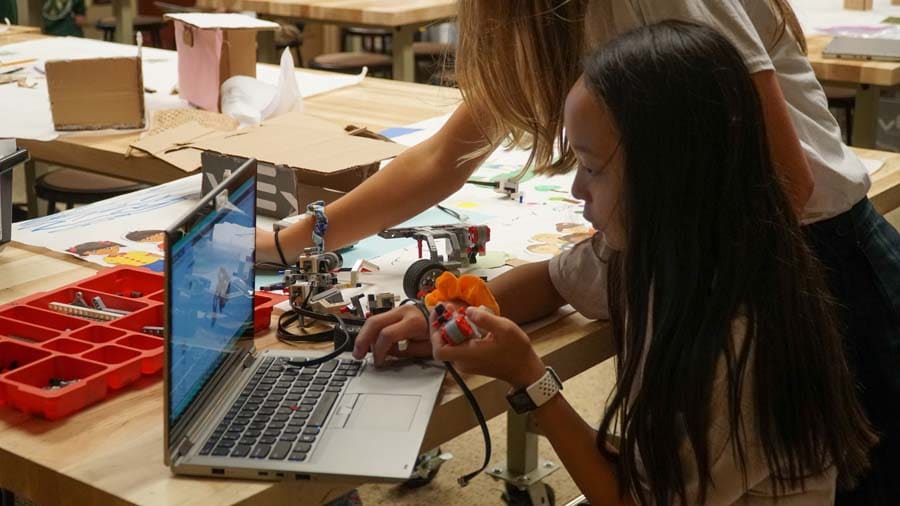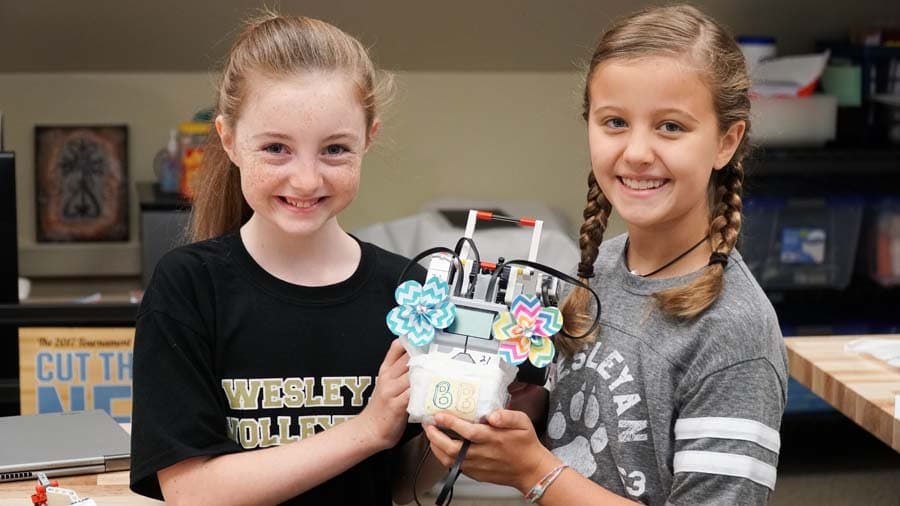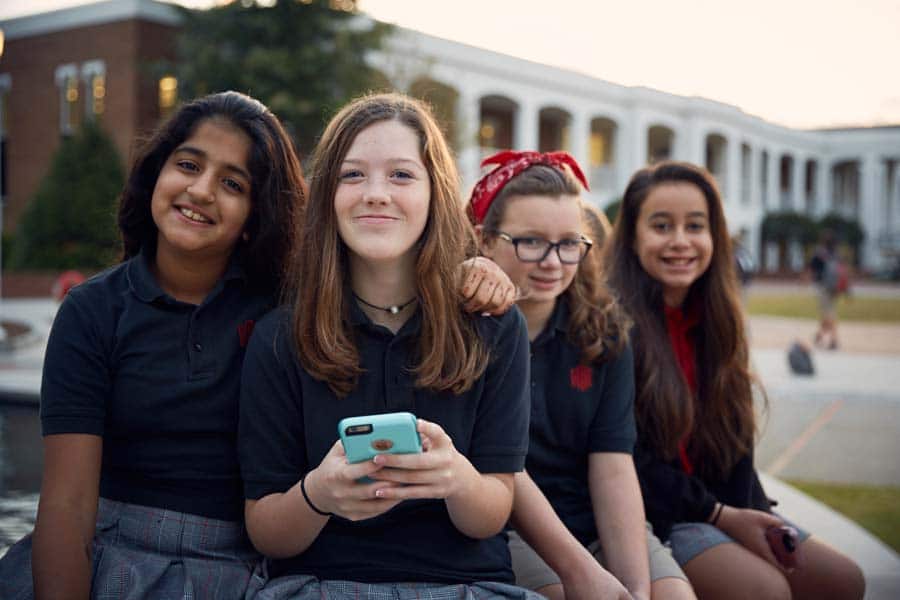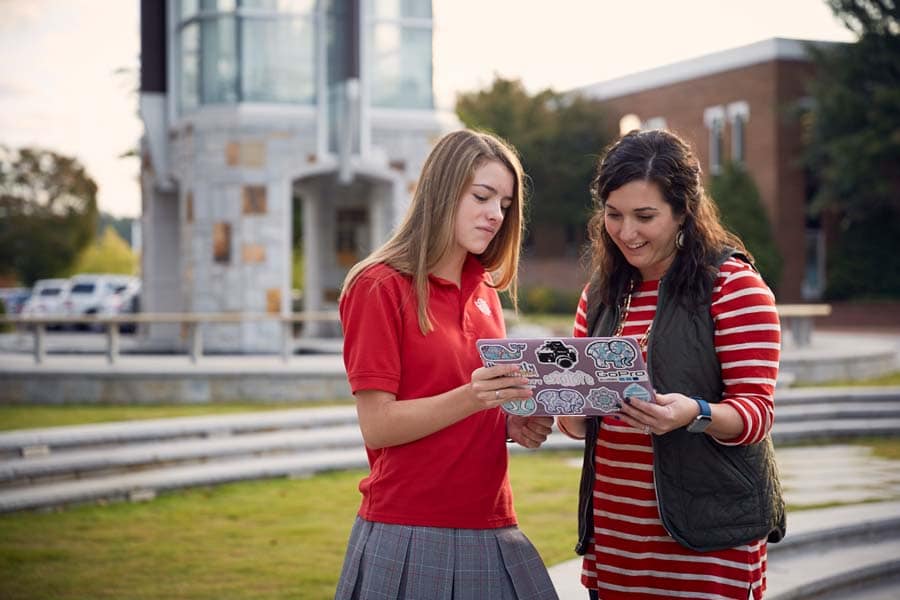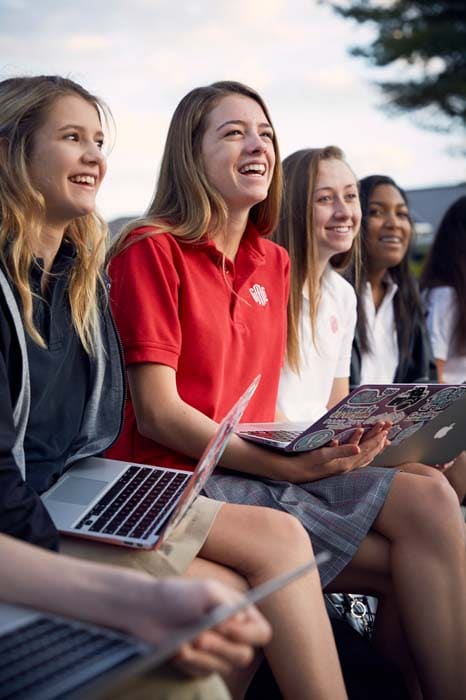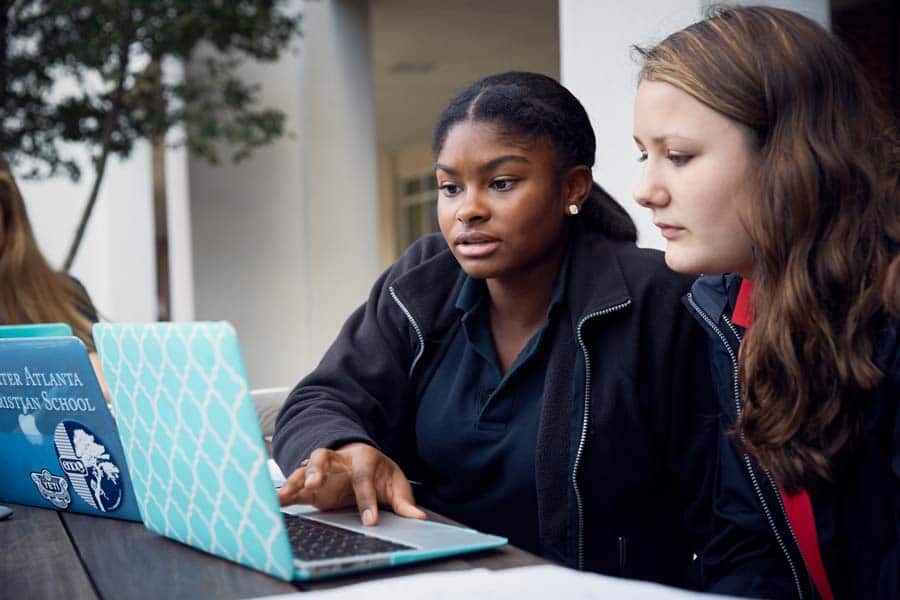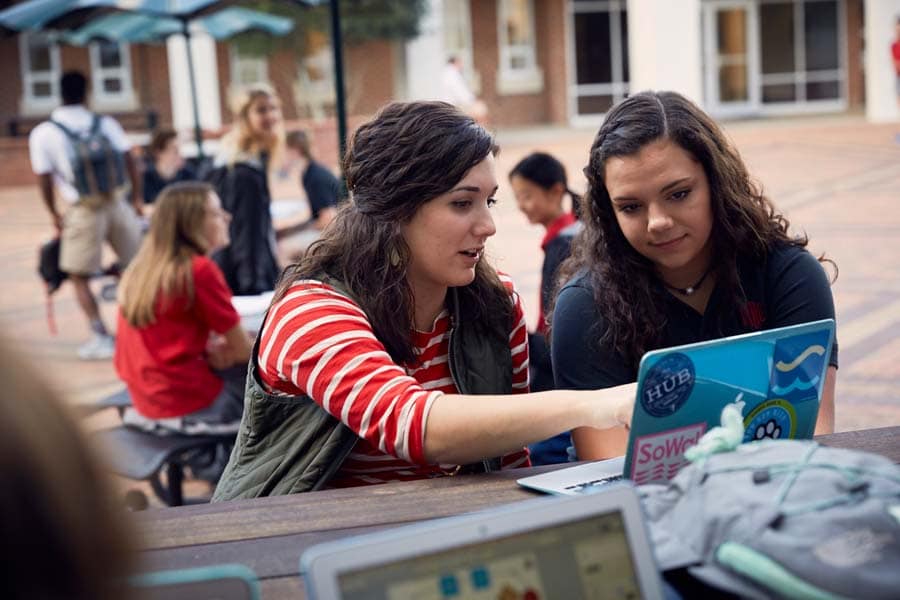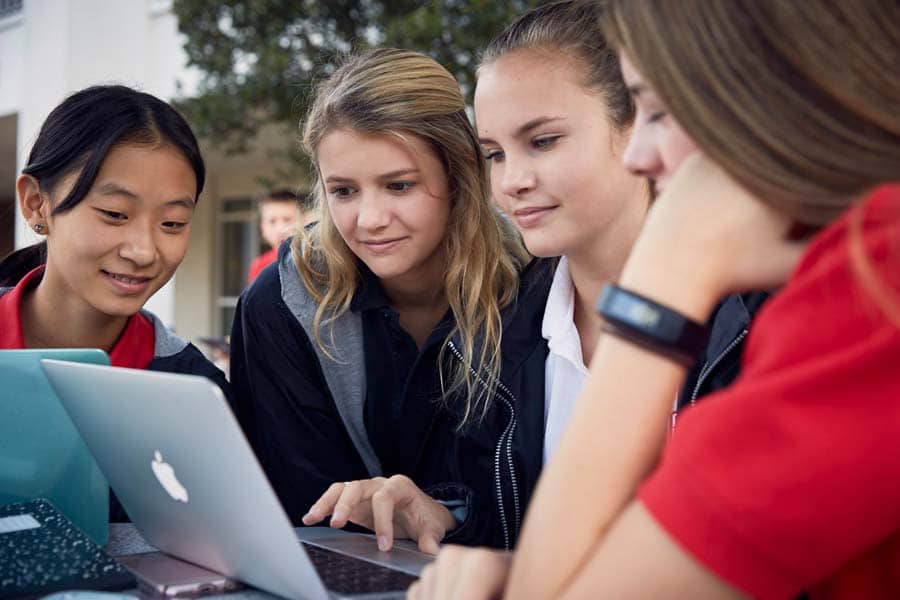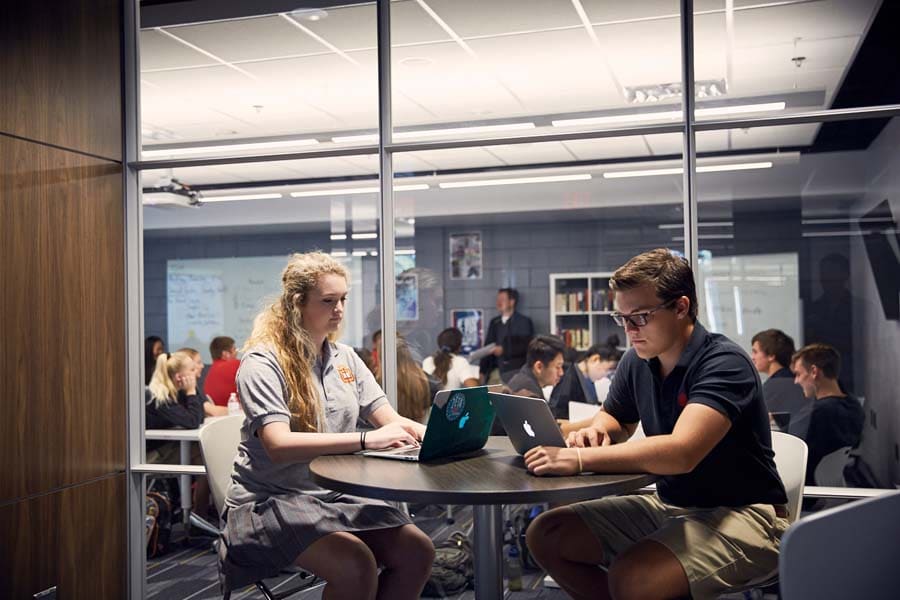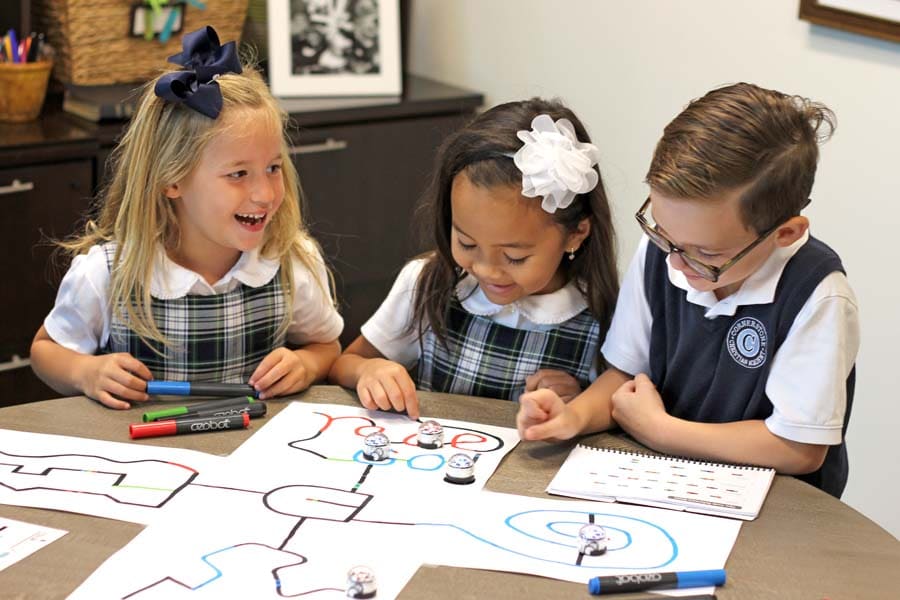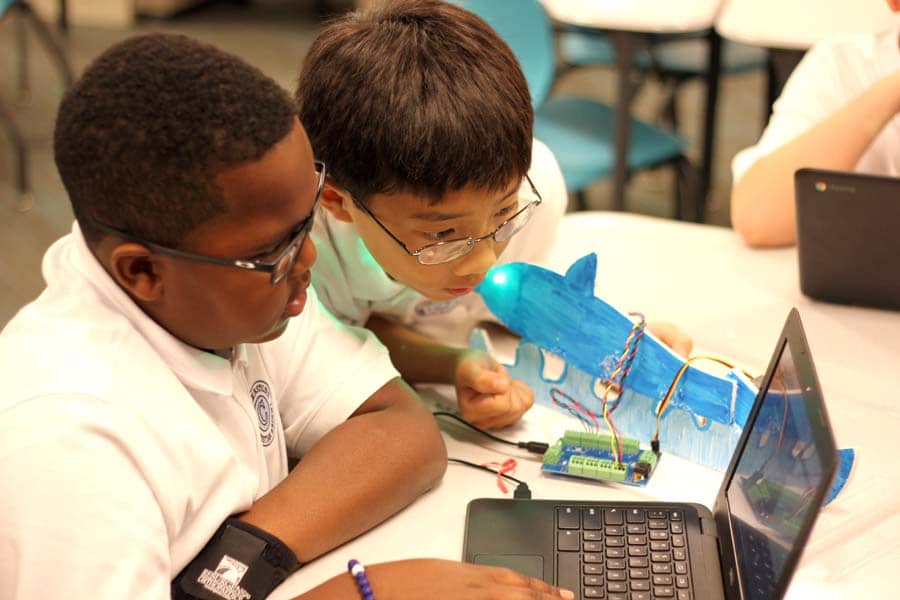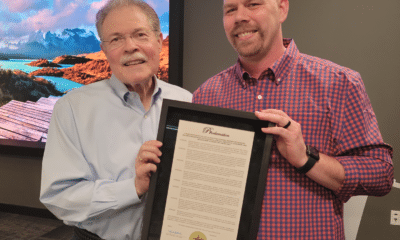Education
Technology in Schools, Empowering Students to Explore, Build & Create
Published
5 years agoon
By
Kathy Dean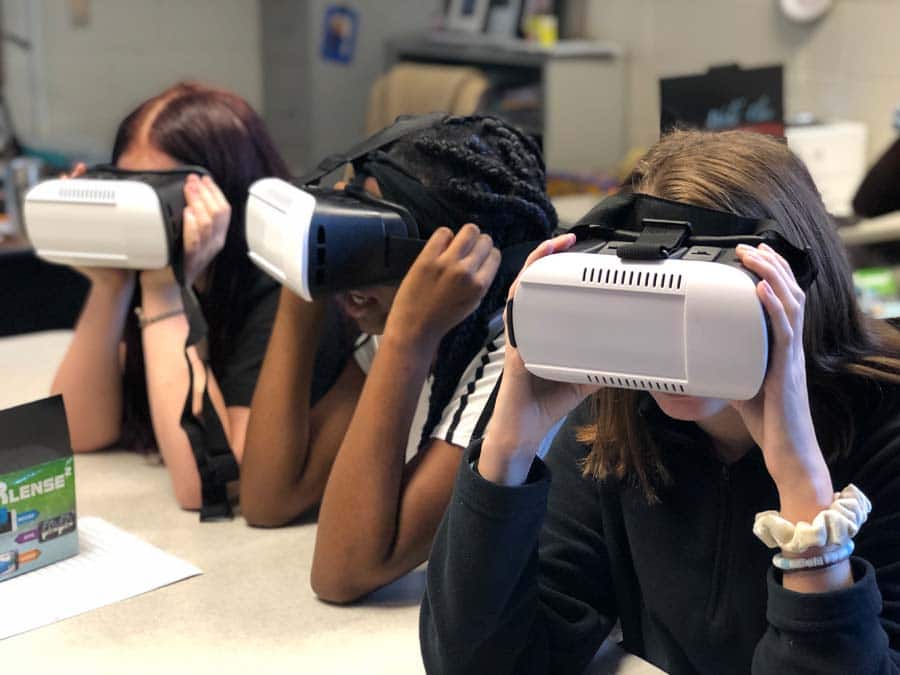
Throughout Peachtree Corners and Gwinnett County, teachers and students are using some of the latest advances in technology to enhance the learning process.
“As you can imagine, there are numerous course offerings and classroom opportunities that include use of and learning about technology,” said Tricia Kennedy, executive director of Instructional Development and Support at Gwinnett County Public Schools (GCPS). “Just like it permeates society, it permeates education.”
However, teachers and administrators are quick to point out that technology is, after all, just one of the tools necessary for a well-rounded education.
“We want to use the tools, not have them using us,” said Dr. Paul Cable, Greater Atlanta Christian educator. “It’s so easy to get that backward. Technology is not an end in itself, but a means, and we try to use it that way.”
Balancing technological opportunities with classroom interaction is a challenge that area schools are successfully meeting with great results.
This article first appeared in print in our October / November 2019 edition
Gwinnett County Public Schools
In recent years, Gwinnett County Public Schools (GCPS) has seen a lot of increased interest in Science, Technology, Engineering and Mathematics (STEM) based courses.
“Many of our schools are now certified by the state of Georgia as STEM schools because of the quality and array of courses and extracurricular offerings in these areas,” said Tricia Kennedy, GCPS executive director of Instructional Development and Support. “All of our elementary schools now have Robotics programs. Middle and high school students have the opportunity to take courses leading to a career pathway in computer science.”
Kennedy said that online courses have become a part of the norm across the country. Teachers are able to provide effective instructional activities online, and there are opportunities for students to communicate and collaborate with teachers and classmates.
“We have a safe and secure environment for these interactions—our eCLASS C&I course pages,” she said. With online offerings, students can access learning resources from anywhere at any time.
“But we also believe face to face interaction with teachers is very important,” Kennedy explained. “Online learning does require a certain skill set for students, and their ability to work independently. Just like for adults, some students are not as comfortable with that model.”
GCPS is constantly adding resources and supports for students and teachers. “Some of our newer science materials give students the opportunity to participate in real problem-solving through simulations,” she continued.
There are 3-D printers in many of the schools, where students learn programming to solve problems and actually make physical objects. Science classes are equipped with probe-ware so students can collect and analyze data in real-time.
“Technology is used to enhance our students’ learning. It has not taken the place of teachers or the need for students to be actively engaged in class,” Kennedy said. “But technology in school can connect our students to information and opportunities that were not possible in the past . . .just as it does for all of us at work and home.” ■
Paul Duke STEM High School
As a newly opened technology school, Paul Duke STEM High School is equipped with the technology to support its courses in Engineering, Mechatronics, Graphic Arts, Digital Arts, Information Technology and Television and Film Production.
One of two 3-D Printers A day in the Mechatronics class at Paul Duke STEM High School, pictured is
Stephen Cochran, Chair of the Career and Technical
Education Department.
Principal Dr. Jonathon Wetherington explained that each student has their own passions and interests that drive them. “Some of the new classes that students are excited about our Principles and Concepts of Animation, Introduction to Cybersecurity, Game Design and AP Computer Science.” In addition, the Television and Film classes are always among the most requested, he noted.
“Courses that allow students to create, problem solve and apply their talents are why Paul Duke STEM was created, so it’s great to expand our offerings and engage our students with these technology-focused courses,” Dr. Wetherington said. “As a technology-focused school, we leverage digital instruction each and every day because our goal is to have students learning through and with technology.”
All classes are taught digitally on Fridays with the opportunity for face-to-face support. “Our only purely digital classes are offered through dual enrollment with our collegiate partners,” he said.
One of those classes is a new exclusive Cyber Security Program partnership with Mercer University and the FBI Atlanta Field Office that allows students to earn college credit in two foundational cybersecurity courses at Mercer while also engaging in case study learning with the FBI.
Another new option for students is Introduction to Mechatronics, which provides an introductory look at becoming an Electronics Technician or a Mechatronics Engineer.
“Digital learning is not a magic bullet,” Dr. Wetherington said. “It requires a great deal of effort to deliver effectively, and our teachers work diligently to design effective and engaging lessons.”
He added that as students get their academic content digitally, they need to learn time management, independence and self-discipline. “It’s exciting to be able to help students develop these valuable skills at such a young age.” ■
Norcross High School
Students at Norcross High School (NHS) are interested in a number of new opportunities available to them, according to NHS principal Will Bishop.
For example, a newly added Graphic Design class is taught by Mr. Miller who worked in the graphic design field and brings a wealth of experience and knowledge to his classroom. In Music Technology, students can utilize a state-of-the-art music lab to create original pieces in a variety of music genres.
“Walking into the lab you may find a student laying down tracks on a Mac or hammering out a drumbeat on a drum pad,” Bishop said.
NHS has begun a partnership with Gwinnett Online Campus to open a Gwinnett Online Center on its campus. “This will be most helpful to students who want to accelerate their learning, need to catch up on coursework or want to take a class that’s not currently offered at NHS,” Bishop explained.
In addition, several students are taking a Georgia Tech class in Advanced Calculus while sitting in an NHS Media Center conference room. Through a Polycom system, the students can hear, see and speak with the professor leading the classroom as if they were on the Georgia Tech campus.
Bishop said that NHS is excited about some new technology the school has received to support its Career Technical Education classes. Students in Engineering classes are now designing and producing prototypes of their own designs using a 3D printer and laser engraver.
“Of course, the most exciting opportunities for our teachers and students is always about the next big advances in technology,” he said, adding that the introduction of virtual reality (VR) or augmented reality will dramatically alter the learning experience for teachers and students.
“Some of our teachers are utilizing VR sets to visit far off historical settings without ever leaving the classroom,” Bishop said. “A student can put on a VR set and experience holding a heart in their hand or a visit to the Louvre.” ■
Wesleyan School
Wesleyan School is a one-to-one school, meaning one device to one child. In Kindergarten through 4th grade, one iPad is provided for each student. Each 5th through 12th-grade student is provided a touchscreen enabled Windows-based laptop.
Middle School students in robotics. (Courtesy of Wesleyan School)
“Wesleyan has always seen the value of and invested in technology as an important tool for learning,” said Brian Morgan, Wesleyan’s Chief Operating Officer. “In recent years, and thanks to the generosity of a donor, the school has expanded and improved its data center and network capabilities.”
“With technology infrastructure in place, our next goal is for technology to support students transitioning from consumers of content to creators of content,” said Jewel Anderson, Instructional Technologist and STEM teacher.
When technology in the classroom is to create, it can become cross-curricular. For example, fine arts students can draw creations on paper and use the school’s Epilog Legend Laser Machine to transform their creations into 3D art. In other classes, students use technology to apply art to the business world.
“By incorporating interactive technology resources, we’re able to take students’ ideas from concept to creation to completion. Every student has the potential to be a maker,” said Heather Niemann, Middle School Art teacher.
There are more ways technology is used efficiently at Wesleyan, too. Modern and classical language students complete performance-based assessments using their tablets to record themselves, then submit the recordings for assessment and feedback on their language speaking skills.
Sixth-grade robotics students recently worked on a group project; they created their own superheroes, designed scenarios using a coordinate plane map and programmed their EV3 robot to perform tasks and solve a real-world problem.
Wesleyan science teachers use student tablets, modeling programs and 3D printers to lead students through creation of new creatures and organisms. “The beauty of students using the 3D printers is that it reinforces the value of planning ahead and trial and error,” Anderson said. “When a student designs a structure and it isn’t structurally sound, the replica from the printer allows them to find that out.” ■
Greater Atlanta Christian
At Greater Atlanta Christian (GAC), every 4th to 12th-grade student has a school issued MacBook, while younger students have access to IPads and MacBooks for targeted learning projects.
GAC educator Mandy Richey explained that it’s important for students to practice 21st-century skills. “All school levels of GAC teach students how to use technology in a responsible way. Students are using technology to reinforce, research, record and create.”
Technology is infused in the curriculum at age-appropriate levels. Students learn to program as early as Elementary School, continuing in Middle School with MakerSpace, a fully equipped workshop, and ending with AP Computer Science and Robotics in High School.
Middle and High School students create new products using one of five 3D printers. The technology-focused courses include Computer Science, App Development, Web Design and Robotics. There are also robotics teams from Elementary to High School.
However, Rhonda Helms, Lower School Principal, said, “We emphasize that technology is just a tool…a resource. It is not our curriculum.”
GAC resources include Ethos School, the virtual school created by GAC that offers over 50 courses to more than 200 students across the U.S. and around the world. Ethos courses ensure rich, inquisitive dialogue among students, who can choose from over 50 courses.
“With online teaching, I learned how important human contact is,” said Dr. Paul Cable, a member of the GAC Ethos School faculty. “People are formed by example and love; they aren’t formed by forum posts. That’s what I love about what GAC’s Ethos School is doing through all of the points of contact with kids. It’s about forming people, not just dumping information on them and testing them on it.”
Chancellor Dr. David Fincher said that the GAC community thrives on relationships above all. “Students respond and achieve greater heights out of their deep personal links with caring and superb teachers. Designed well, technology learning can make those ties between students and teachers even deeper and more life-changing, not less.” ■
Cornerstone Christian Academy
“Technology has transformed the way Cornerstone teaches young students,” said Melissa Dill, Lower School Principal at Cornerstone Christian Academy. The school recently purchased Lego WeDo engineering sets for grades 2 through 4. “The hands-on STEM activities combine engineering, computer programming and collaboration and are a nice segue way to programming in the middle school robotics and technology classes.”
Students work in Snap, a block programming software, to create motion, light and sound for their robots. Robots are assembled with recyclable materials and components from a Hummingbird Robot kit. (Photography by: Josh Whitlock)
Dill said that students as young as kindergarteners begin coding robots with an innovative, screen-free product called Ozobot. “These bots encourage critical thinking as students use different colors to direct a small bot on a page. Their faces come alive when they realize that they can control a robot by simply drawing lines of different colors,” she said.
Middle School Math/Technology teacher Terri Childers said that 6th-grade students have a Technology elective. “The focus is on learning ways to effectively navigate the internet when researching a topic.” Students also work in two web-based programming apps, Snap and Scratch. Both are block programming apps that can be used to program robots.
“Our 7th and 8th grade students take a technology course that focuses on programming. Programming languages and apps like Robot C, Python and Construct 3 are all part of the curriculum,” Childers said. Construct 3 is a web-based video game creation application and has been a big hit with students. “Having access to free software that allows students to make video games from scratch that track scores, play background music and have animated characters is a valuable tool for learning,” she said.
The entire middle school is a Google Education school, and most middle school classes have digital textbooks that a student can access with a username and password. “Our students keep classwork organized through Google Drive,” Childers said.
The system allows students to easily share work with teachers and collaborate with peers. Since their accounts aren’t tied to any single device, students can access their accounts from anywhere on any device with internet access. ■
Related
Contributing Editor Kathy Dean has been a writer and editor for over 20 years. Some of the publications she has contributed to are Atlanta Senior Life, Atlanta INtown, Transatlantic Journal and The Guide to Coweta and Fayette Counties.

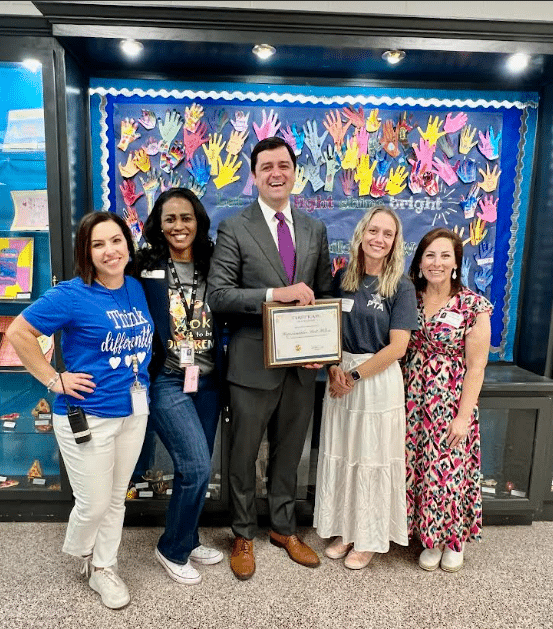
Simpson Elementary School celebrated Exceptional Children’s Week (ECW) last month with five days of special activities to recognize their special needs population and all of their exceptional students.
April 14–18 is set aside each year to celebrate children with disabilities, gifts and talents. This year’s ECW theme was Bridging Gaps and Building Futures, and the school was happy to take part.
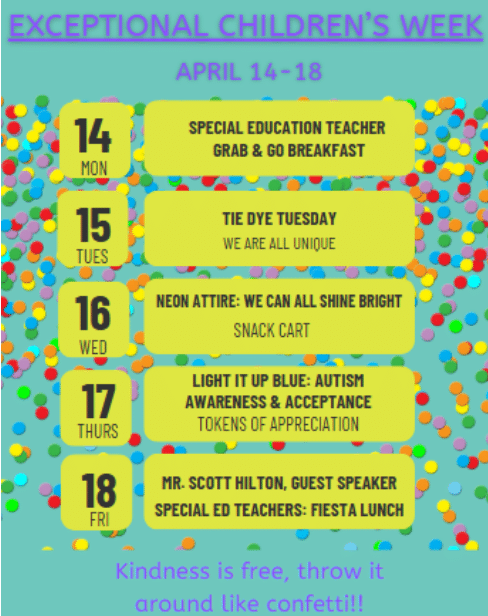
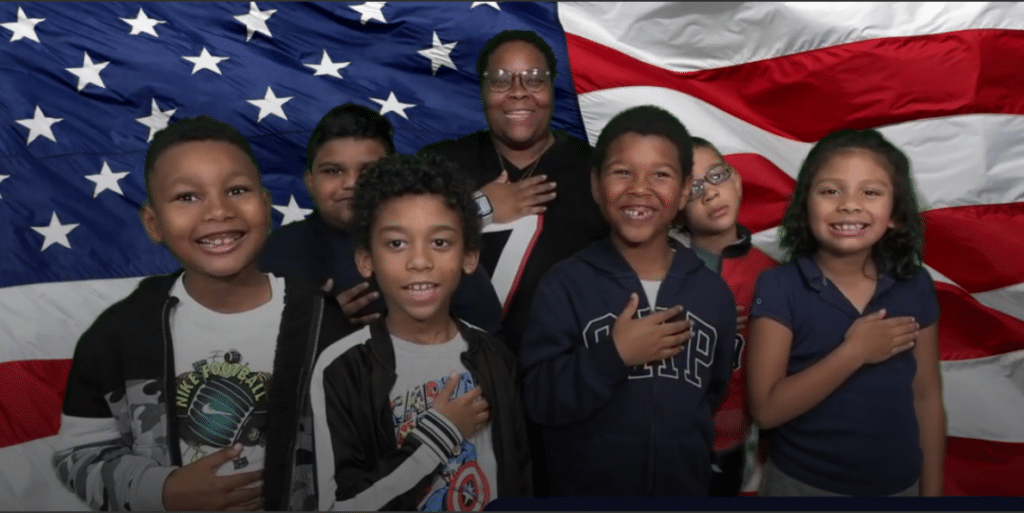
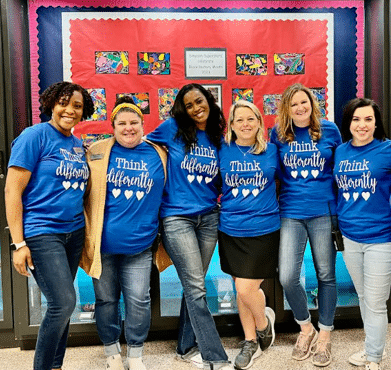
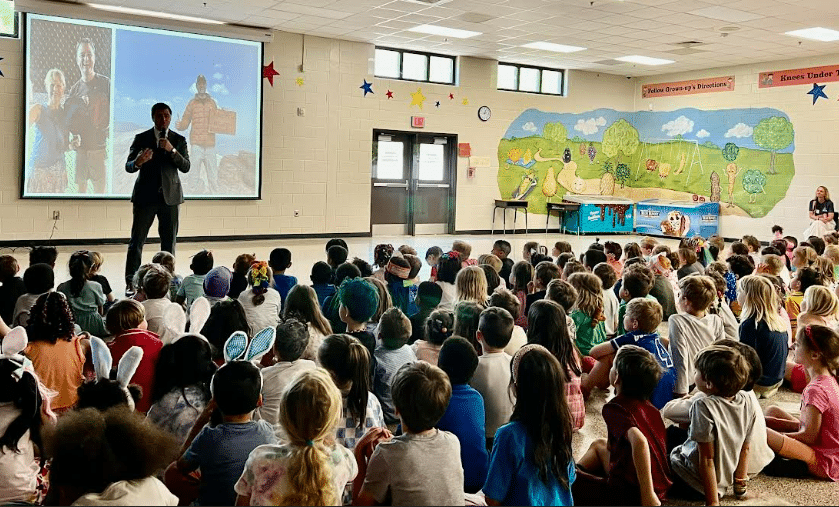
They highlighted each day of the week on the morning news with fun facts about notable people in society — and throughout history — who have overcome challenges with their disabilities, including actor Daniel Radcliffe (who has lived with dyspraxia for his entire life), Tom Cruise, Whoopi Goldberg, Frida Kahlo and Helen Keller.
Simpson Elementary’s technology team also pre-recorded various special needs classes reciting the Pledge of Allegiance every day of the week.
Guest speaker
To end their ECW with a bang, they invited former Simpson Elementary parent, State Representative Scott Hilton, to come in and speak to their K-2 classes about raising his son, Chase (who is autistic and now a student at Norcross High School), and how being different is okay.
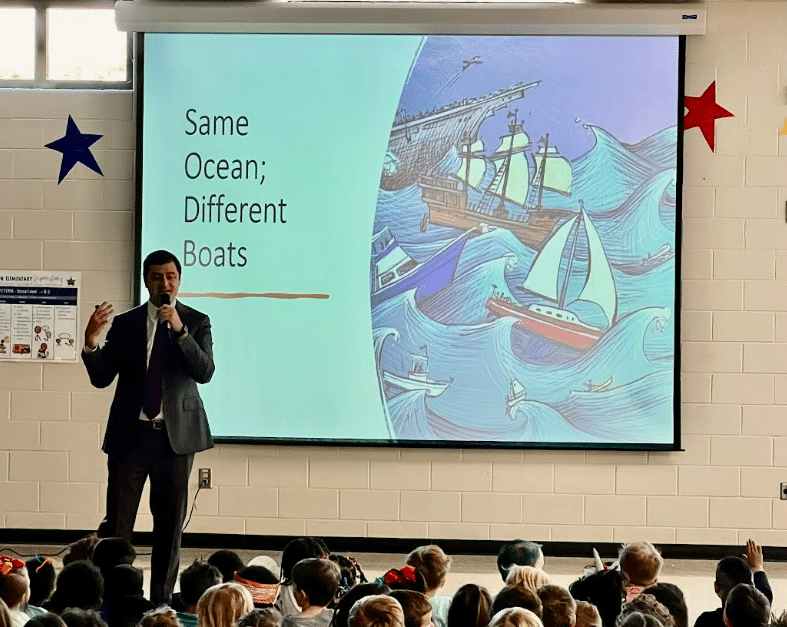
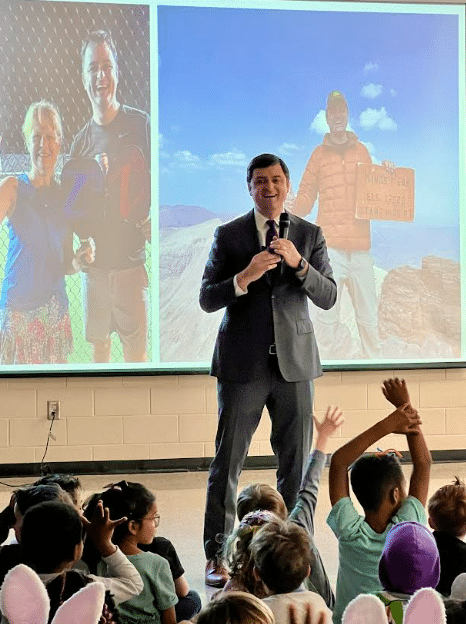
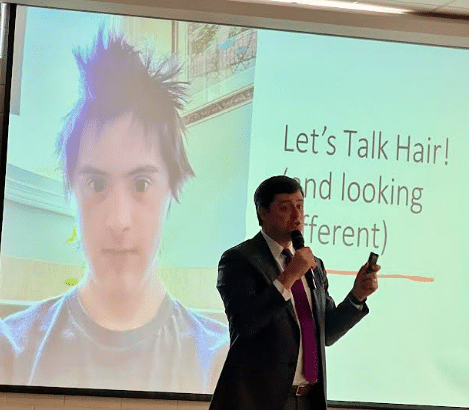
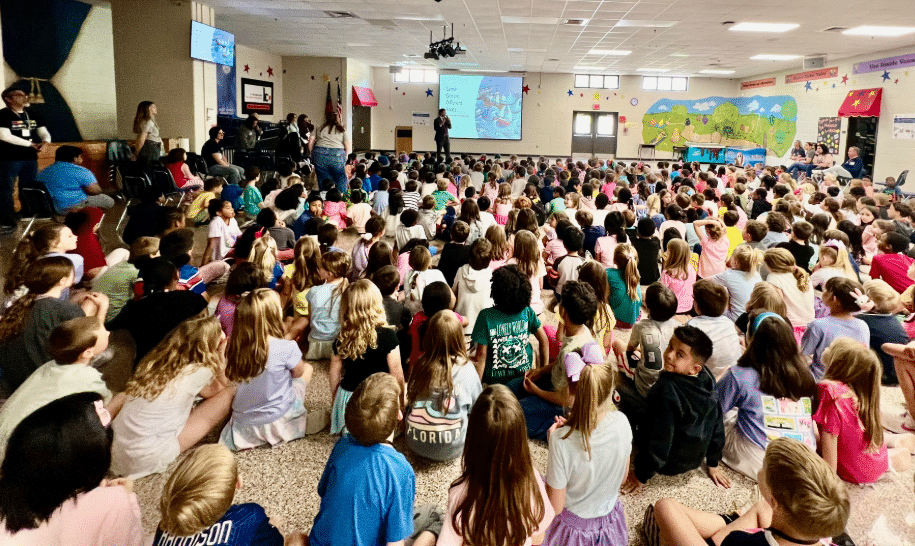
“Showing kindness and being inclusive is the best version of humanity,” said Dr. Taffeta Connery, Simpson Elementary School principal, in a statement about the event.
“Simpson Elementary has a special needs population of 214 (23%) of 946 students. [And] … we strive to ensure that our students are valued, recognized and instilled with high expectations for all.”
For more about Simpson Elementary, visit simpsones.gcpsk12.org.
Related
Education
Paul Duke STEM High School Student Earns CGO Scholarship
Published
3 weeks agoon
May 2, 2025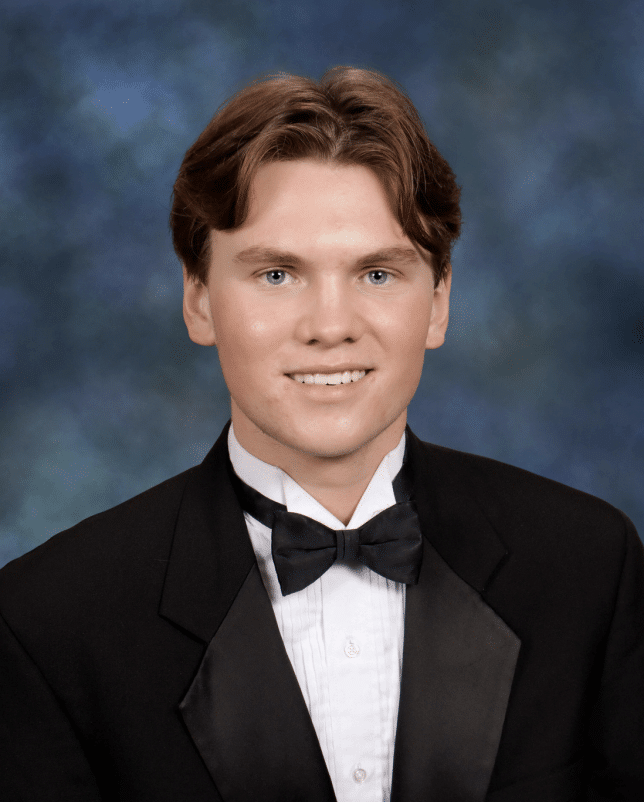
Cobb Global Outreach Inc. (CGO Inc.), a non-profit organization dedicated to enhancing financial literacy and educational opportunities, recently awarded three scholarships to metro Atlanta high school seniors, including one to Paul Duke STEM student, Baylor M. Brown.
The scholarship initiative underscores CGO Inc.’s commitment to empowering youth through financial education and support.
According to CGO’s social media pages, these outstanding students have shown incredible dedication and resilience in their academic journeys. “We are proud to support their continued success and look forward to seeing all that they will achieve!”
Scholarship details and impact
The scholarships provided by CGO Inc. are designed to alleviate financial barriers and encourage academic excellence among students pursuing higher education. Each scholarship recipient will receive financial assistance to support their educational endeavors, along with resources to enhance their understanding of financial management and literacy.
The scholarship recipients have demonstrated remarkable potential and a strong commitment to making a positive impact in their local community and beyond.
Bobby Cobb, CEO and founder of Cobb Global Outreach Inc., expressed enthusiasm about the partnership, stating, “We are honored to support the students … . By investing in their education and financial literacy, we aim to equip them with the skills necessary for a successful and financially secure future.”
Looking ahead
Cobb Global Outreach Inc. remains committed to expanding its scholarship programs and financial literacy initiatives. The organization plans to collaborate with additional schools and community partners to further its mission of closing the wealth gap and fostering economic empowerment among youth.
About Cobb Global Outreach Inc.
Founded in January 2021, Cobb Global Outreach Inc. is dedicated to educating middle and high school students about financial literacy. The organization believes that providing students with tools and resources related to financial literacy will help narrow the wealth gap and promote economic empowerment.
For more information, visit cobbglobaloutreachinc.com.
Related
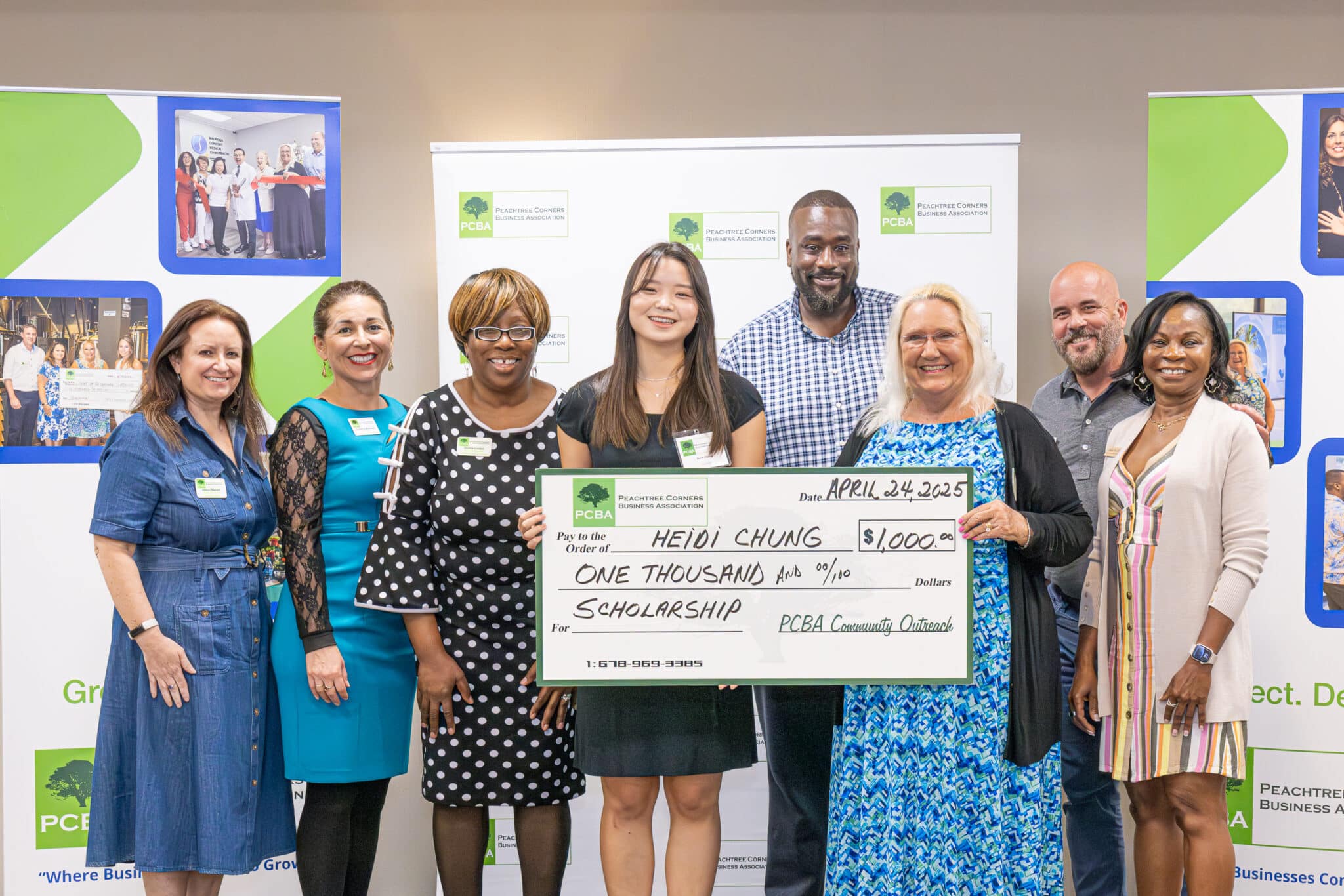
The Peachtree Corners Business Association (PCBA) awarded local high school senior, Heidi Chung, a $1,000 scholarship during their April 24 Business After Hours event. Heidi and her family were presented with the scholarship and introduced to the organization’s members and guests at the monthly gathering.
Heidi was accepted by several colleges and has selected the University of Kentucky to continue her education, pursuing a degree in nursing. When asked what lessons she has learned from her experiences volunteering and serving in the community throughout her life, Heidi commented, “I have learned that true leadership is about service, taking initiative and persevering through challenges.”
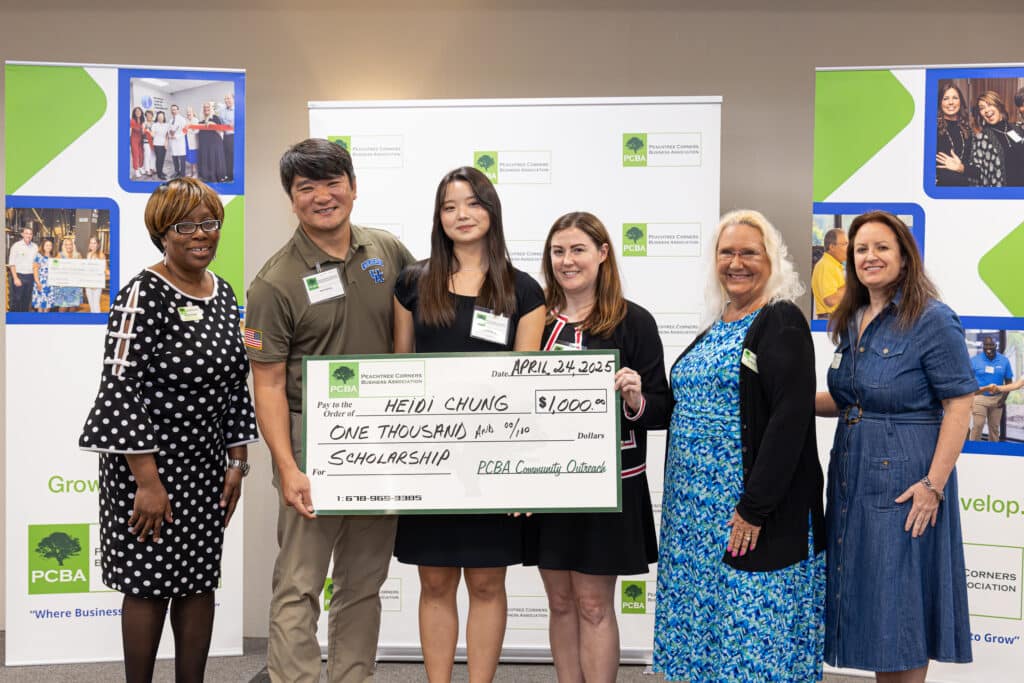
Scholarship Chair Donna Linden and Outreach Director Suzanna Martinez shared that the scholarship committee was impressed with Heidi’s many accomplishments, “whether she was organizing fundraisers, leading performance groups or helping athletes recover from injuries, Heidi demonstrated a positive impact on the community, as well as outstanding academic results.”
Funds for the PCBA Community Outreach Program are raised throughout the year from PCBA membership, sponsorship and an annual charity event. Donations and scholarships are awarded at PCBA’s monthly events so that members have the opportunity to learn more about the individuals and organizations.
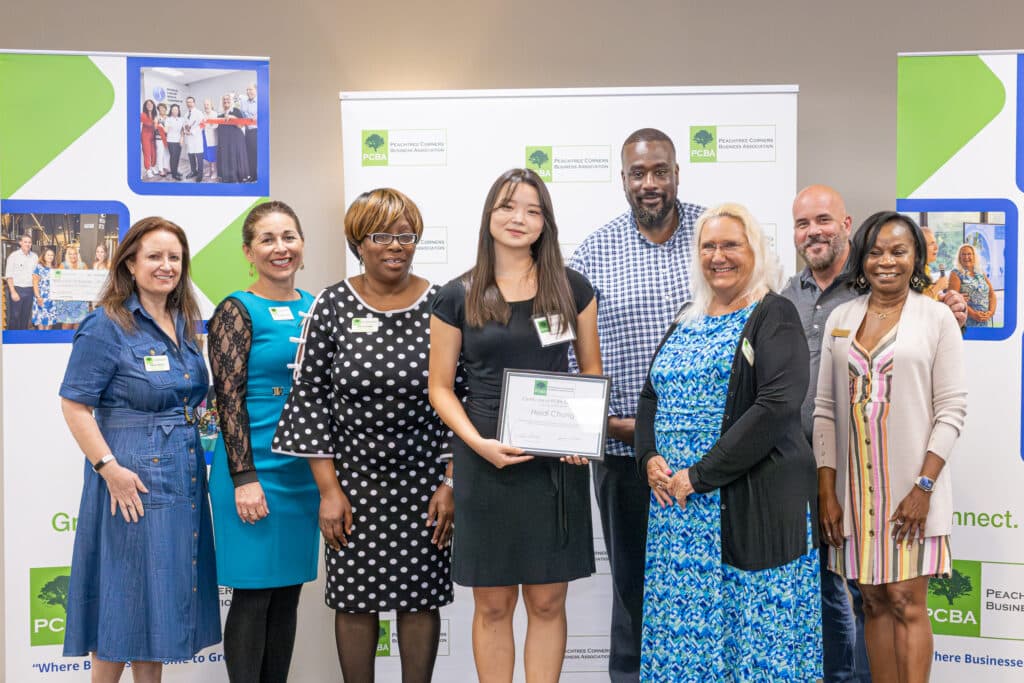
“We are so proud that the PCBA has … awarded 20 scholarships to outstanding future business leaders and donated in excess of $173,000 into our metro Atlanta community over the last 13 years,” stated Lisa Proctor, PCBA board president.
About Peachtree Corners Business Association
“Where Businesses Come to Grow,” the Peachtree Corners Business Association is a business membership organization that focuses on innovative approaches, programs, shared resources, community outreach and opportunities for member businesses and professionals to connect, develop, grow and prosper.
The PCBA is made up of businesses of all sizes and types who want to expand their reach and grow their business within Peachtree Corners and the greater metro Atlanta area.
For more information, call 678-969-3385, email membership@peachtreecornersba.com or visit peachtreecornersba.com.
Related
Read the Digital Edition
Subscribe
Keep Up With Peachtree Corners News
Join our mailing list to receive the latest news and updates from our team.
You have Successfully Subscribed!

Peachtree Corners Hosts Discussion About the Future of Local Policing

D1 Training Brings New Fitness Concept to Peachtree Corners

MomoCon 2025 to bring 60,000 Fans to Atlanta for a Weekend of Cosplay, Animation, Gaming and Music

Atlanta’s Dog Howl-O-Ween Festival Moving to Peachtree Corners for 2025

City of Peachtree Corners Awarded Certificate of Achievement From GFOA for Seventh Straight Year

Local Special Olympics Pickleball Team Honored with State House Resolution

From Boardrooms to the Himalayas: Vandana’s Journey to Purpose and Growing with Intention [Podcast]

Brandon Branham Honored for Transformative Leadership in Peachtree Corners

Music Matters Productions Expands Peachtree Corners Headquarters

Brandon Branham Honored for Transformative Leadership in Peachtree Corners

From Boardrooms to the Himalayas: Vandana’s Journey to Purpose and Growing with Intention [Podcast]

MomoCon 2025 to bring 60,000 Fans to Atlanta for a Weekend of Cosplay, Animation, Gaming and Music

Local Special Olympics Pickleball Team Honored with State House Resolution

Atlanta’s Dog Howl-O-Ween Festival Moving to Peachtree Corners for 2025

D1 Training Brings New Fitness Concept to Peachtree Corners

Peachtree Corners Hosts Discussion About the Future of Local Policing

Light up the Corners [Video]

Capitalist Sage: Business Leadership in Your Community [Podcast]

Cliff Bramble: A Culinary Adventure through Italy

Top 10 Brunch Places in Gwinnett County

A Hunger for Hospitality

THE CORNERS EPISODE 3 – BLAXICAN PART 1

Top 10 Indoor Things To Do This Winter

The ED Hour: What it takes to Remove Barriers from Education

Peachtree Corners Life
Topics and Categories
Trending
-
Business3 days ago
From Boardrooms to the Himalayas: Vandana’s Journey to Purpose and Growing with Intention [Podcast]
-
City Government2 days ago
Brandon Branham Honored for Transformative Leadership in Peachtree Corners
-
Business1 day ago
Music Matters Productions Expands Peachtree Corners Headquarters


